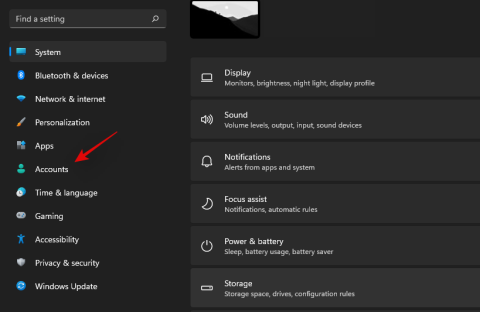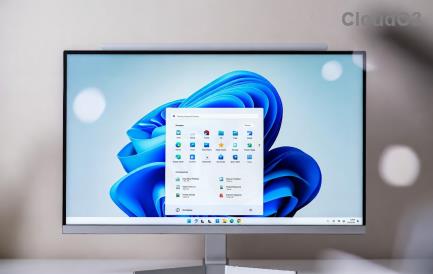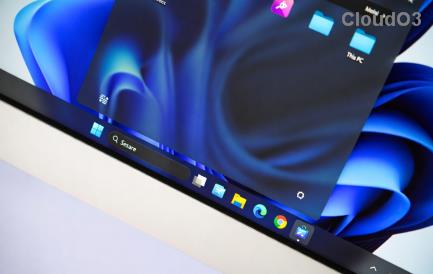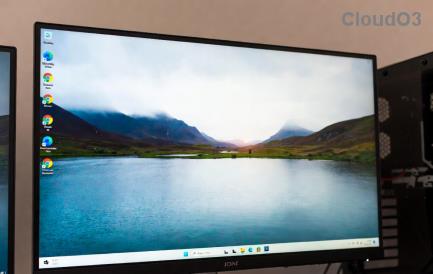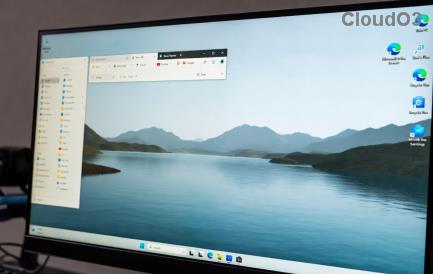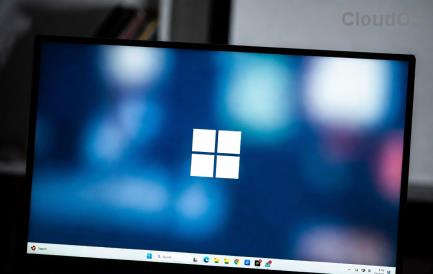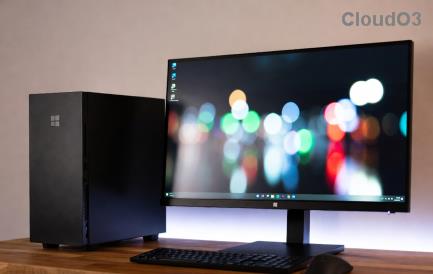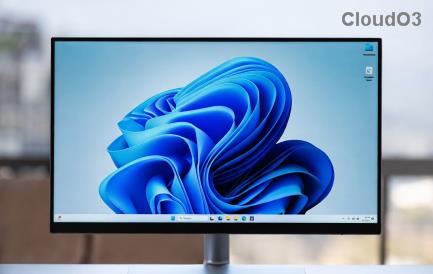Windows 11 è stato rilasciato al pubblico e questo nuovo aggiornamento del sistema operativo di lunga data sembra ricevere ottime recensioni. Microsoft ha aumentato la privacy, la sicurezza ha aggiunto una nuova interfaccia utente e la possibilità di installare app Android su Windows 11. Ma come al solito, Windows viene fornito con molte cose preinstallate che sono irrilevanti per quasi tutti gli utenti.
E se hai acquistato un sistema predefinito o un laptop, è probabile che sul tuo sistema sia installato un software pubblicitario aggiuntivo che potresti voler rimuovere. Puoi rimuovere e disinstallare facilmente la maggior parte delle app su Windows con un semplice clic, tuttavia, le cose si complicano quando arrivi a programmi, app di Windows Store, aggiornamenti di Windows e app di sistema. Non temere, puoi seguire le nostre guide di seguito per rimuovere tutti i tipi di app dal tuo sistema Windows, indipendentemente dalle impostazioni correnti. Iniziamo.
Contenuti
Come disinstallare le app su Windows 11 [8 modi]
Ecco tutti i modi in cui puoi disinstallare un'app dal tuo PC Windows 11. Per la disinstallazione delle app di sistema , vedere le sezioni dedicate e i metodi speciali di seguito dopo questa sezione.
Metodo n. 01: utilizzo delle impostazioni
Segui la guida qui sotto per disinstallare un'app tramite Impostazioni dal tuo sistema. Se stai tentando di disinstallare un'app predefinita, ti consigliamo di cambiarla in anticipo in modo che l'opzione di disinstallazione non sia disattivata per te. Nel caso in cui non sapessi di modificare un'app predefinita in Windows 11, puoi seguire la guida di seguito.
Passaggio 1: modificare prima l'app predefinita? [Opzionale]
Nota: assicurati di aver installato un'app sostitutiva sul tuo sistema in anticipo per sostituire l'app predefinita. Ad esempio, se stai cambiando il tuo browser da Microsoft Edge, allora devi avere un altro browser, che desideri utilizzare, già installato sul tuo sistema in modo che tu possa sceglierlo come browser predefinito.
Premi Windows + isulla tastiera per aprire l'app Impostazioni. Ora fai clic su "App" nella barra laterale sinistra.
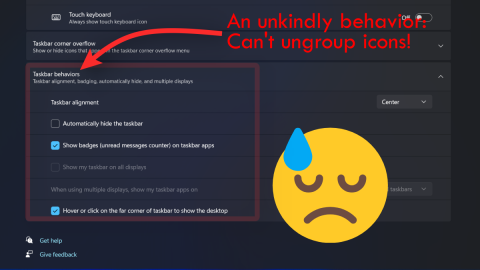
Fare clic e selezionare "App predefinite" sulla destra.
Ora scegli l'app che desideri rimuovere come app predefinita e fai clic su di essa. Nel caso in cui desideri modificare l'app predefinita in base al tipo di file, fai clic su "Scegli le impostazioni predefinite per tipo di file" in basso come mostrato di seguito.
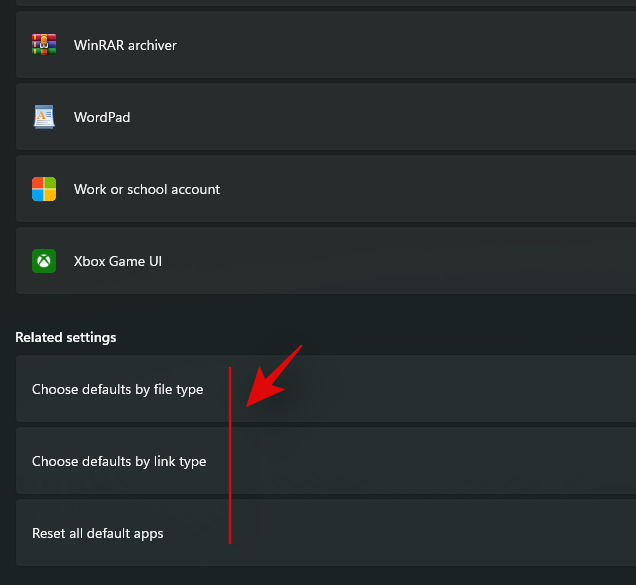
Ora fai clic sul tipo di file/estensione desiderato e scegli un'app a tua scelta.
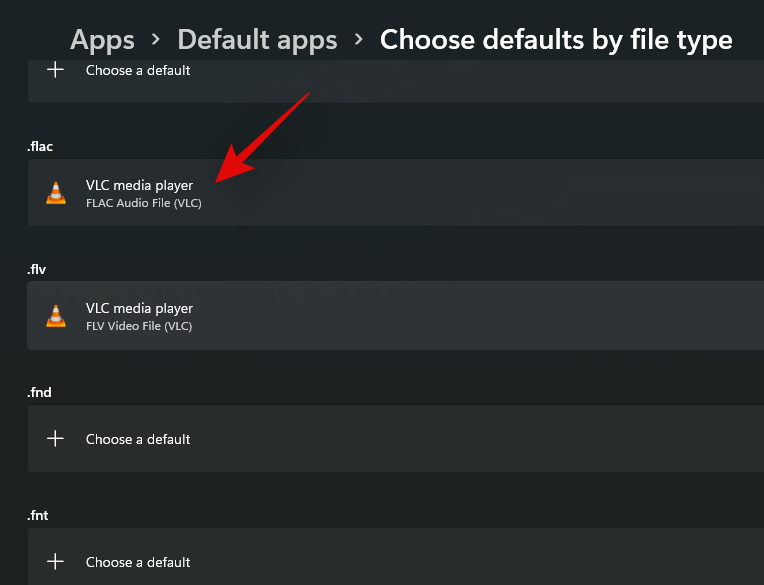
Ripetere il passaggio precedente per tutti i tipi di file/estensioni necessari.
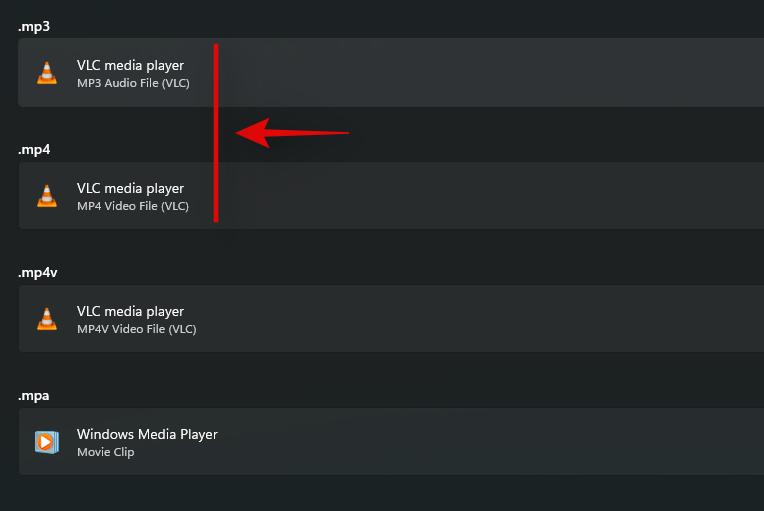
Chiudi l'app Impostazioni e riavvia il sistema per buona misura.
E questo è tutto! Una volta riavviato il sistema, la tua app predefinita dovrebbe essere cambiata. Ora puoi utilizzare la guida di seguito per disinstallare l'app necessaria tramite "Impostazioni" sul tuo sistema.
Passaggio 2: disinstalla l'app da Impostazioni
Premi Windows + isulla tastiera e seleziona "App" alla tua sinistra.

Ora fai clic su "App e funzionalità" alla tua destra.
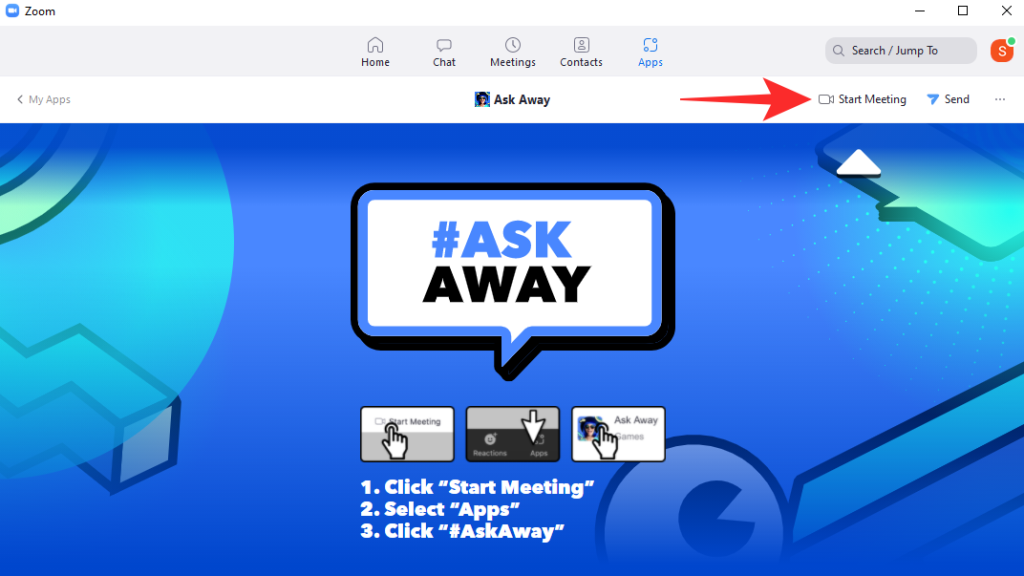
Scorri l'elenco e trova l'app che desideri disinstallare. Una volta trovato, fai clic sull'icona del menu "3 punti" alla tua destra.
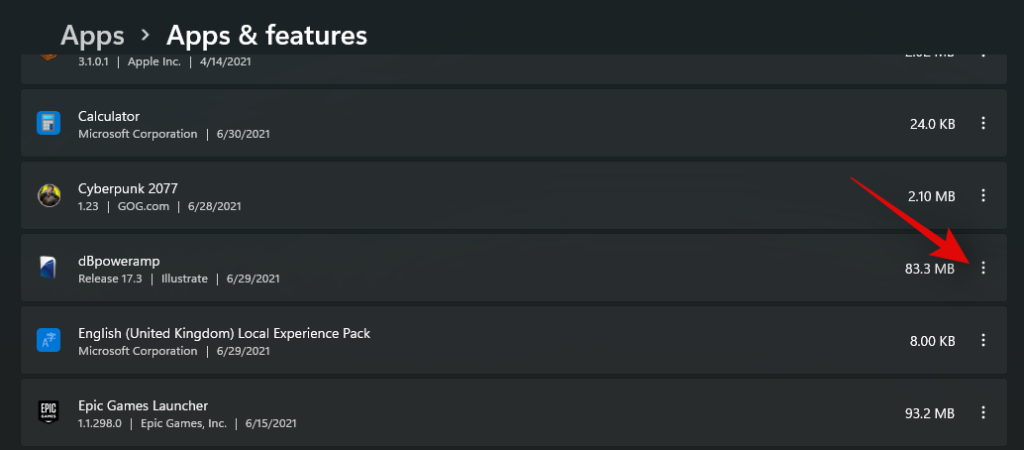
Fare clic e selezionare "Disinstalla".
Ora segui le istruzioni sullo schermo per disinstallare l'app. Se stai disinstallando un'app preinstallata o Windows Store, questa verrà automaticamente disinstallata in background. Tuttavia, se si tratta di un programma rilevato da Windows, a seconda del programma, Windows proverà a disinstallarlo in background o avvierà "uninstall.exe" o "setup.msi" in modo che tu possa disinstallarlo da solo con le impostazioni desiderate. Potresti essere in grado di conservare/salvare alcuni dati quando incontri tali configurazioni, inclusi elementi come file di registro, dati utente, dati di salvataggio, immagini e altro.
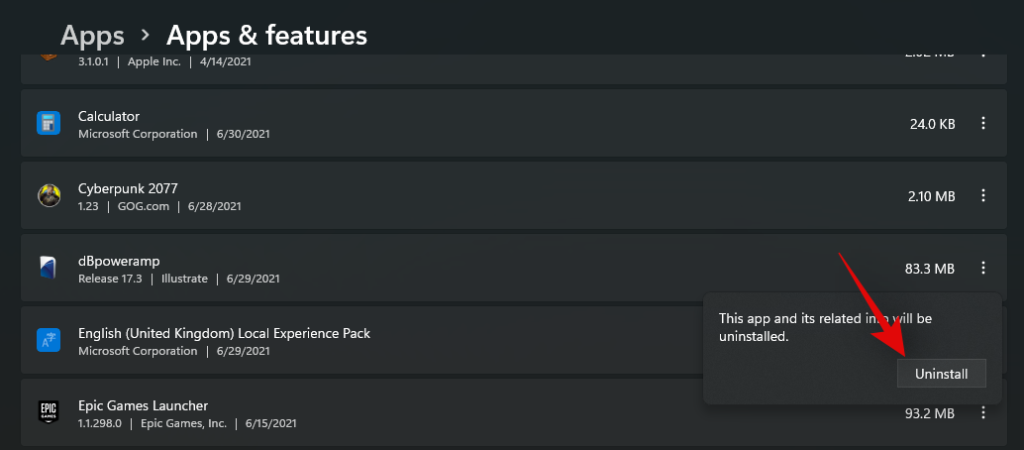
In alternativa, avrai anche la possibilità di rimuovere completamente tutto ciò che riguarda il programma dal tuo sistema.
E questo è tutto! L'app selezionata dovrebbe ora essere disinstallata dal sistema. Se hai disinstallato un programma pesante, ti consigliamo di svuotare la cache utilizzando questa guida, soprattutto se il programma supera la dimensione di 30+ GB.
Premi il pulsante "Windows" sulla tastiera per visualizzare il menu "Start". In alternativa, puoi anche fare clic sull'icona nella "Barra delle applicazioni".
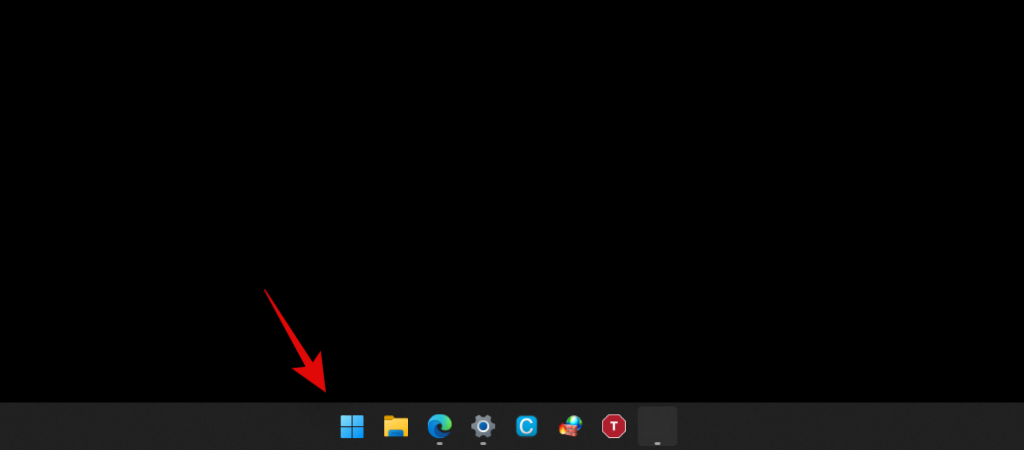
Trova l'app che desideri disinstallare e fai clic con il pulsante destro del mouse su di essa.
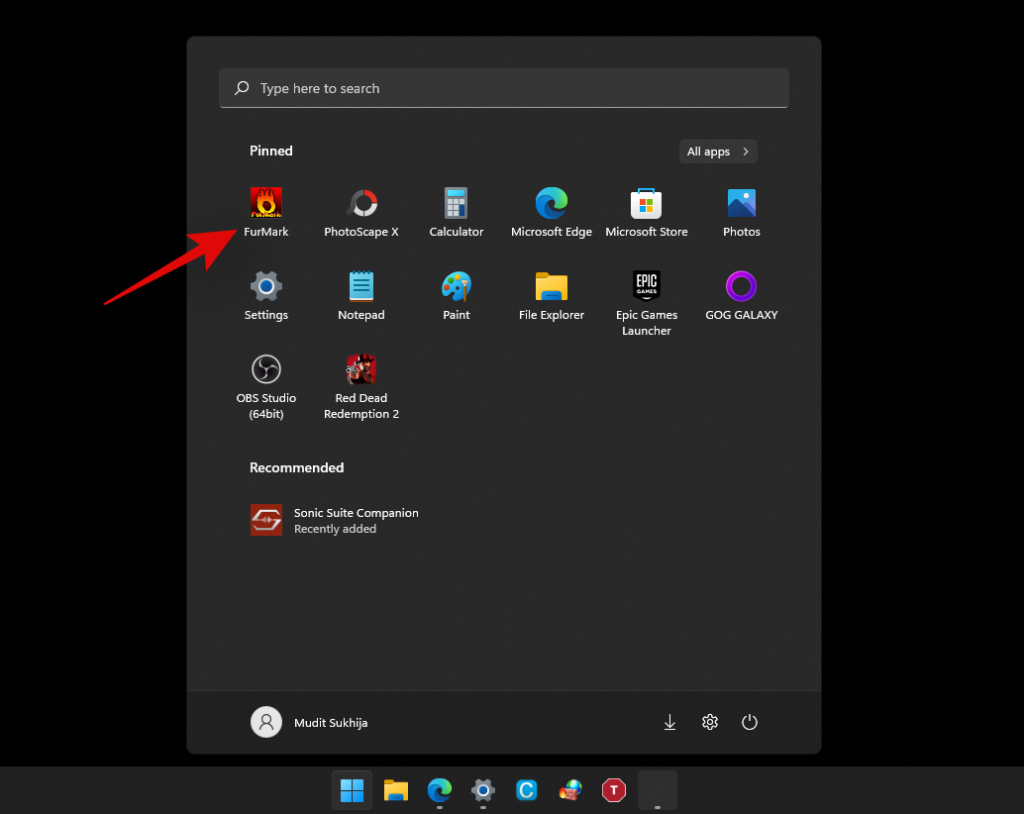
Ora fai clic su "Disinstalla". Segui le istruzioni sullo schermo, se necessario, per completare il processo di disinstallazione.
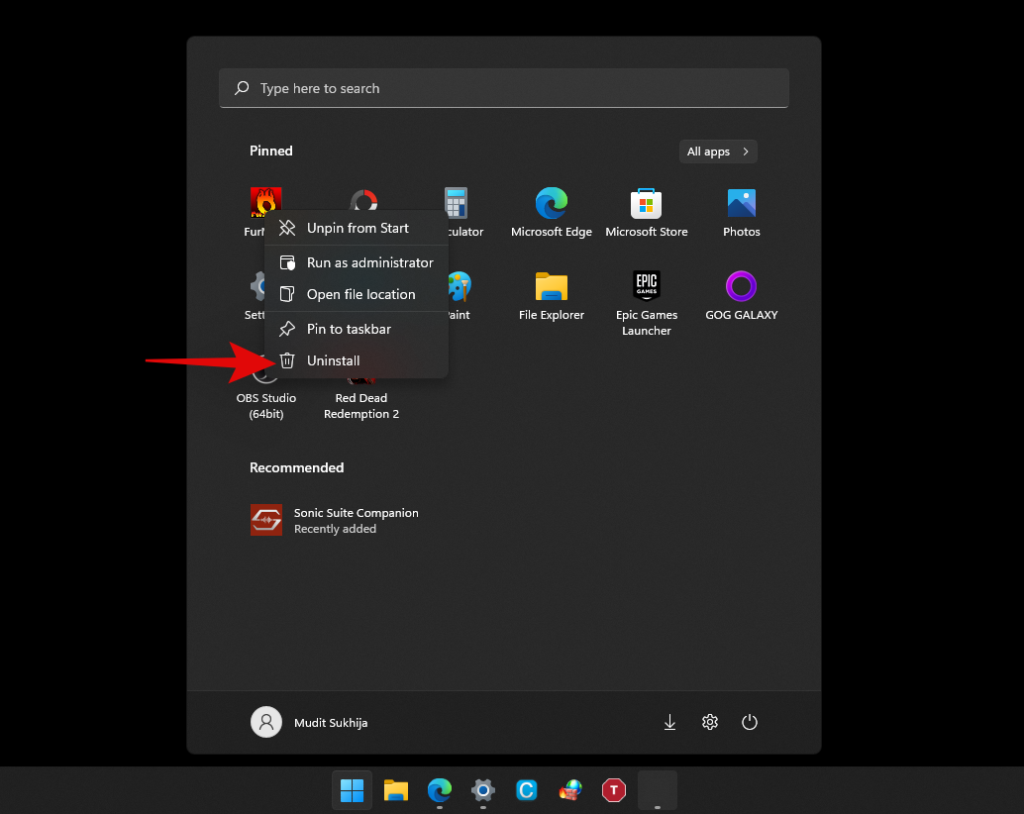
E questo è tutto! Ora avrai disinstallato un'app dal tuo sistema tramite il menu Start.
Metodo #03: utilizzo del file di disinstallazione ".exe"
Idealmente, non dovresti aver bisogno di avviare manualmente il file eseguibile di disinstallazione per un programma, ma in alcuni casi, come i programmi più vecchi, potresti avere un programma installato sul tuo sistema, la cui opzione di disinstallazione non viene mostrata da nessuna parte nelle tue Impostazioni. In questi casi, puoi avviare autonomamente il file di disinstallazione utilizzando la guida di seguito.
Individua il file .exe del programma o il collegamento che usi di solito per avviare il programma e fai clic con il pulsante destro del mouse su di esso.
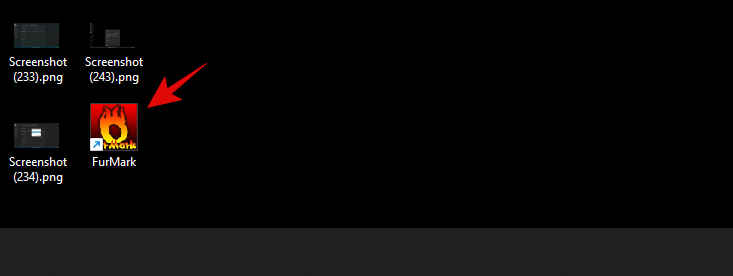
Seleziona "Apri posizione file". Se non vedi questa opzione, seleziona Proprietà. Ora troverai l'opzione "Apri posizione file" nella scheda "Generale" come mostrato di seguito.
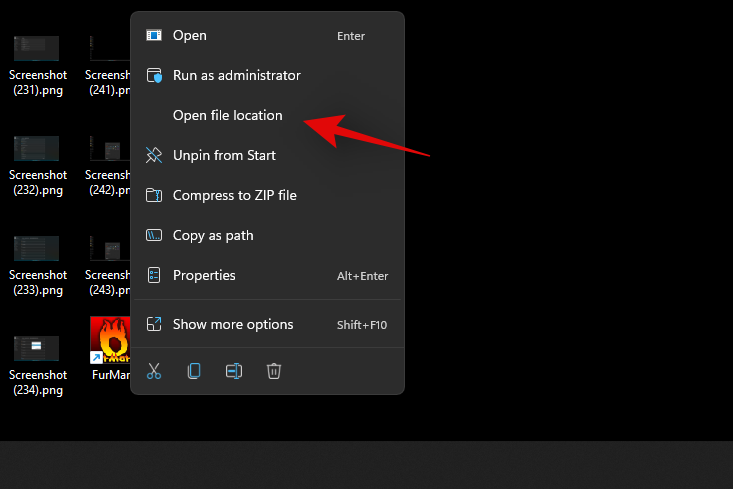
Verrai ora indirizzato alla directory di installazione del programma. Cerca un file .exe con uno dei seguenti nomi o un nome simile.
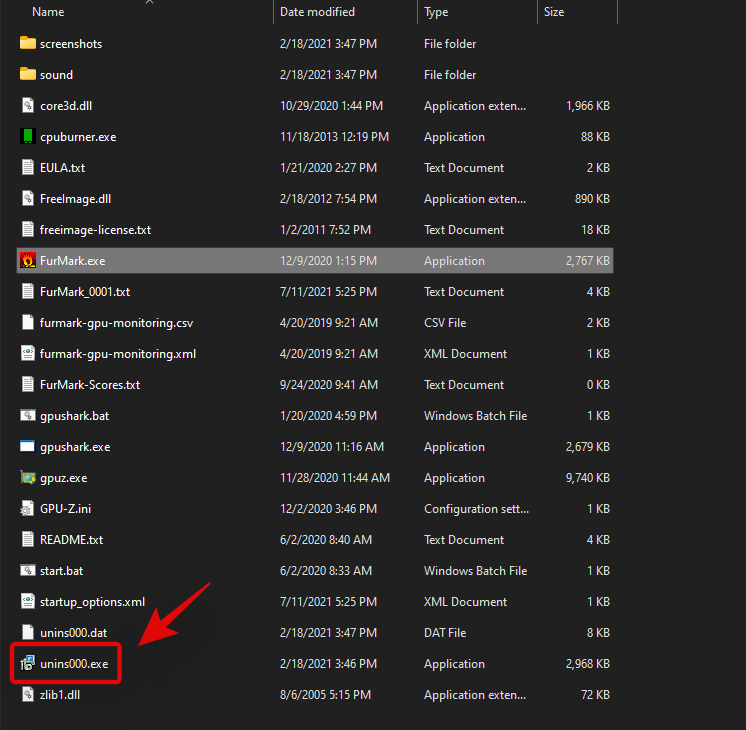
- uninst.exe
- uninstall.exe
- setup.exe
- setup.msi
- (nome programma)setup.exe/.msi
- (nome programma)uninstall.exe/uninst.exe
e altro ancora. Il programma/installazione di disinstallazione avrà un nome simile. Una volta avviato, puoi seguire le istruzioni sullo schermo per disinstallarlo dal tuo sistema.
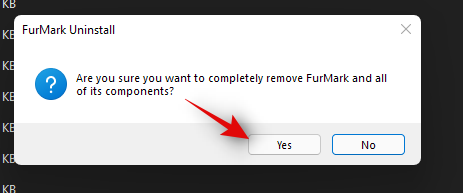
In alcuni casi, potresti anche avere la possibilità di riparare, reinstallare o modificare il programma insieme alla disinstallazione. È possibile selezionare l'opzione desiderata e procedere con l'installazione come si desidera.
Metodo n. 04: utilizzo del pannello di controllo
Puoi anche rimuovere facilmente programmi e app dal Pannello di controllo. Idealmente, si consiglia di disinstallare solo i programmi legacy e moderni utilizzando il Pannello di controllo poiché non tutte le app installate verranno visualizzate qui. Segui la guida qui sotto per disinstallare i programmi tramite il pannello di controllo.
Premi Windows + ssulla tastiera e digita "Pannello di controllo". Fare clic e avviare l'app una volta visualizzata nei risultati di ricerca.
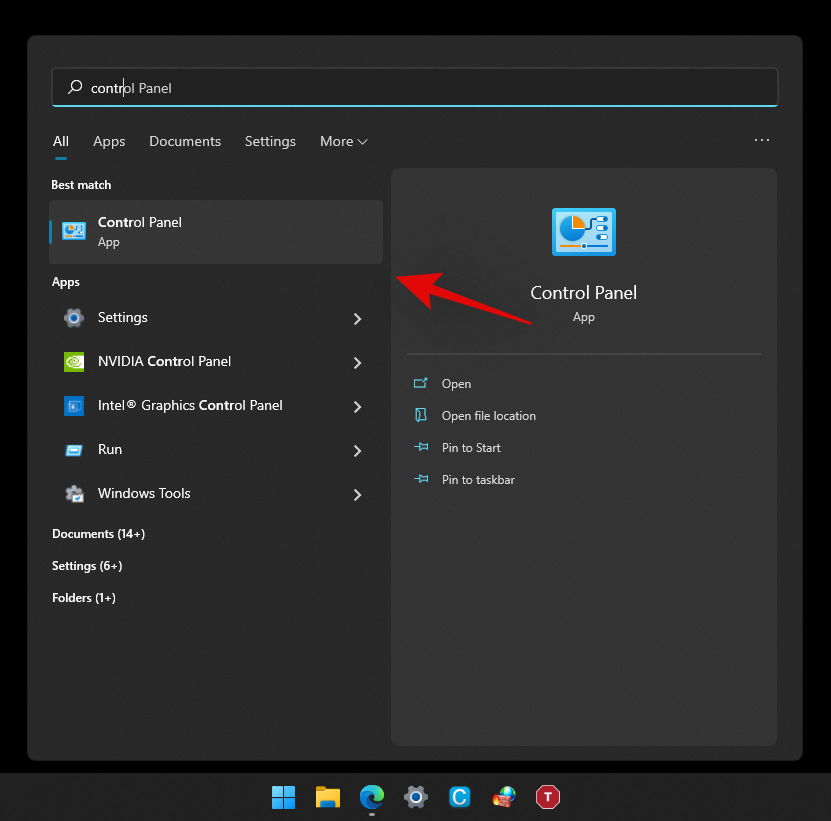
Ora fai clic su "Programmi e funzionalità".
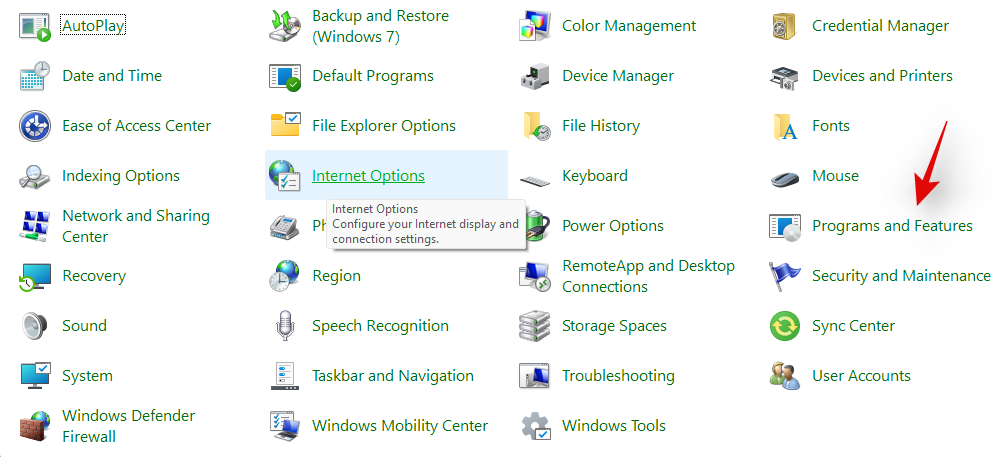
Ora otterrai un elenco di tutti i programmi installati attualmente sul tuo sistema. Trova il programma che desideri disinstallare e fai clic su di esso.
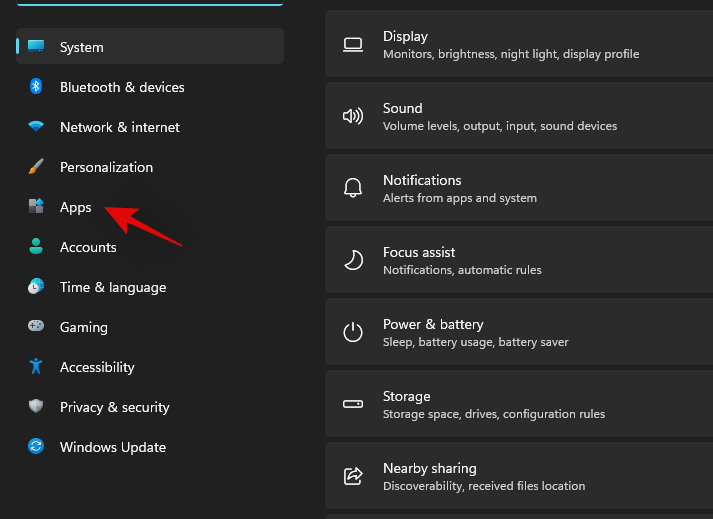
Ora seleziona "Disinstalla" in alto.

Segui le istruzioni sullo schermo per completare il processo di installazione. In alcuni casi, questo sarà un processo automatizzato, mentre in altri potresti avere la possibilità di riparare l'installazione esistente o scegliere quali dati desideri conservare e quali dati desideri eliminare.
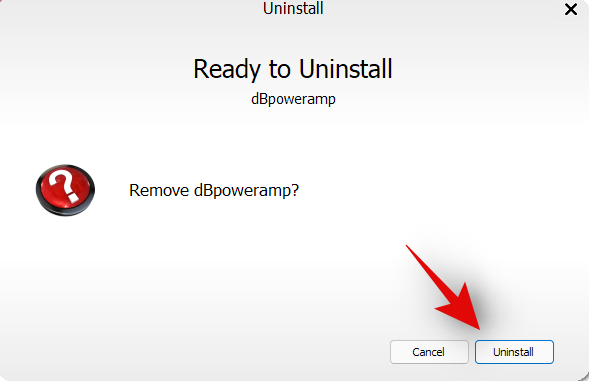
Una volta effettuate le scelte, il processo di disinstallazione avrà luogo e il programma dovrebbe essere rimosso dal sistema una volta completato il processo.
Metodo #05: utilizzo di PowerShell
Puoi anche disinstallare le app tramite un PowerShell con privilegi elevati in Windows 11. Sebbene il comando di disinstallazione sia abbastanza semplice, ottenere il nome del pacchetto per l'app o il programma in questione non lo è. Quindi, nella guida qui sotto troverai come disinstallare le app tramite PowerShell se hai il nome del pacchetto.
Tuttavia, se non sai come reperire il nome completo del tuo pacchetto, ti consigliamo di seguire la guida alle app di sistema di seguito che copre lo stesso metodo in modo molto più dettagliato. Iniziamo.
Premi Windows + ssulla tastiera e digita "PowerShell". Ora fai clic su "Esegui come amministratore" una volta visualizzato nei risultati di ricerca.
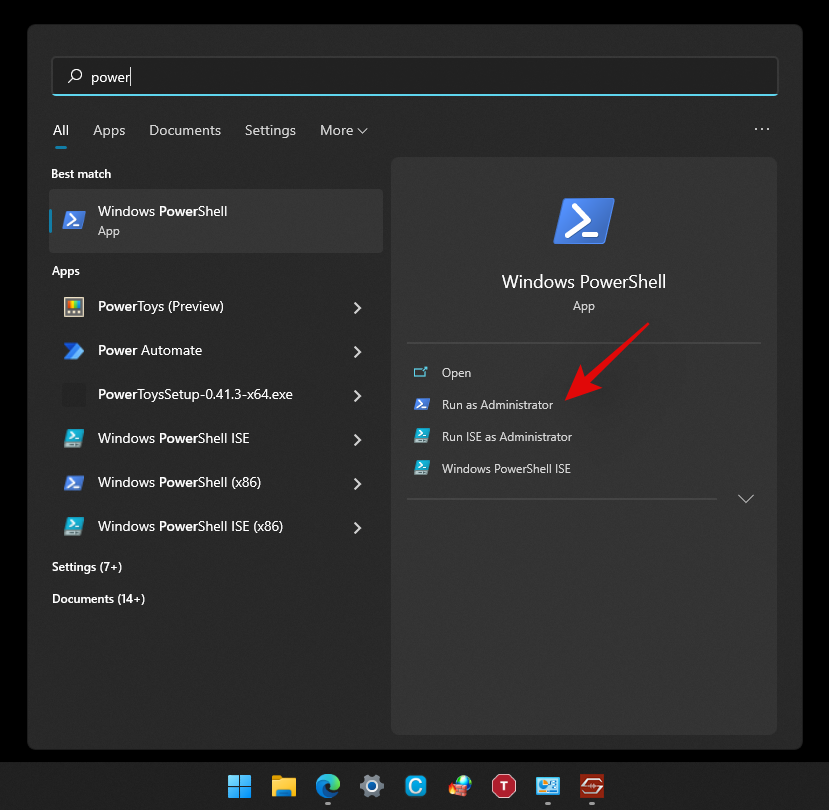
Una volta visualizzata la finestra di PowerShell sul desktop, digita il seguente comando e premi "Invio" sulla tastiera. Assicurati di sostituire "[Nome]" con il nome completo del pacchetto dell'app interessata.
Remove-AppxPackage [Name]

And that’s it! Powershell will now do its magic and uninstall the concerned app from your system.
Method #06: Using CMD
You can also use the command prompt in Windows 11 to uninstall apps from your system. Follow the guide below to get you started.
Press Windows + s on your keyboard and search for ‘CMD’. Click on ‘Run as administrator’ once it shows up in your search results.
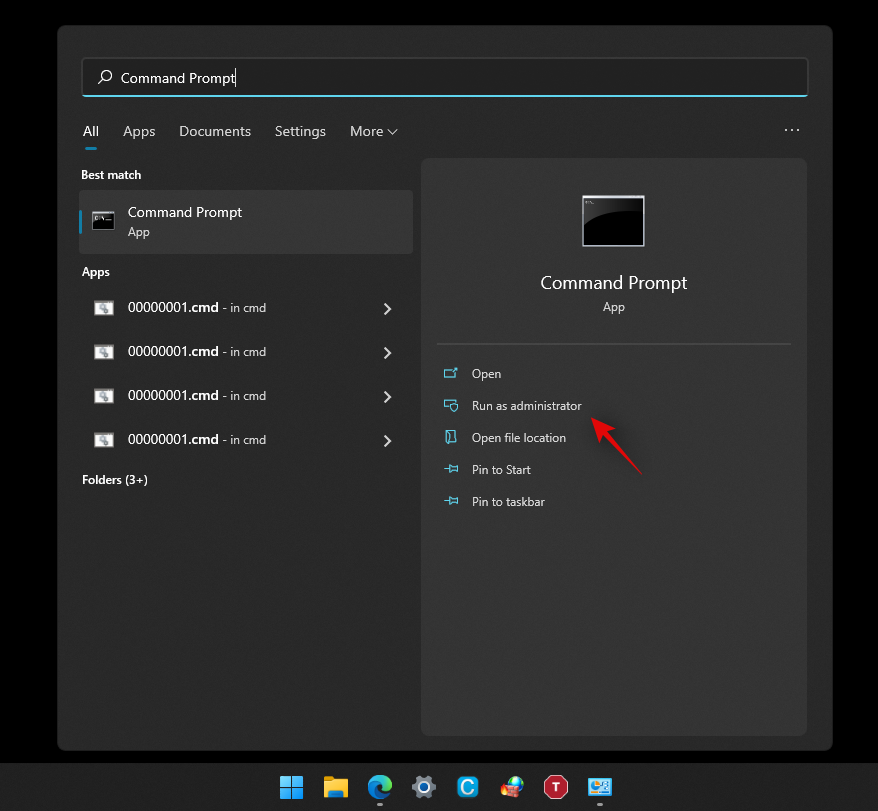
Once CMD launches, type in the following command and press ‘Enter’ on your keyboard.
wmic

Now type in the following command to get a list of all apps and programs installed on your system.
product get name

Once you get a list of all the programs, find the one that you wish to uninstall in this list. Once found, make a note of its entire name in a convenient location.
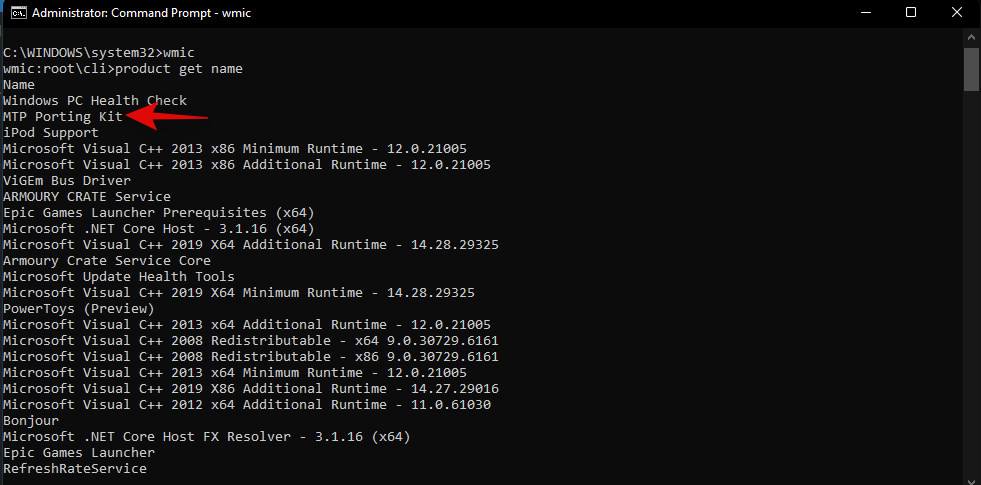
Now type in the following command, and replace AppName with the name of the app you noted down earlier.
product where name="AppName" call uninstall/nointeractive
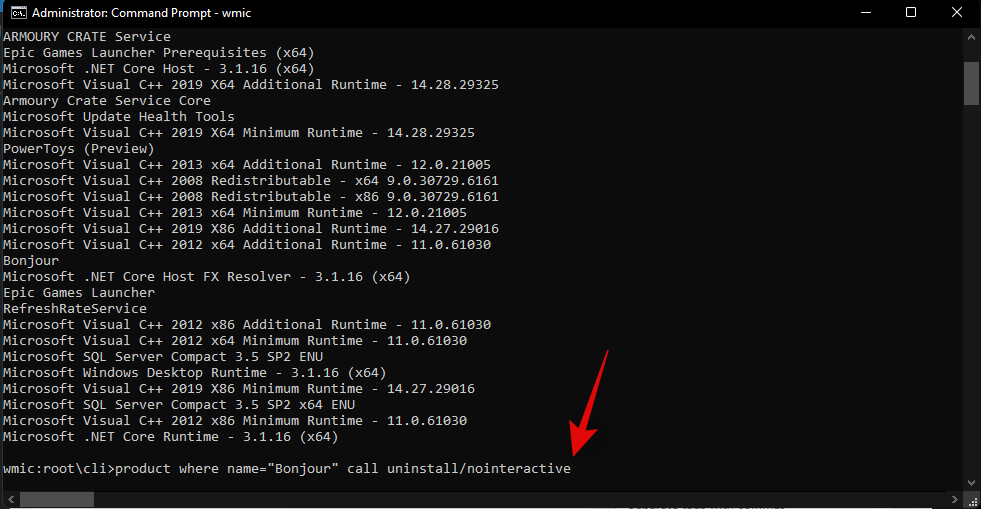
Note: Do not remove the quotes from the command as they are necessary for this syntax.
Press ‘Enter’ on your keyboard to execute the command.
Command Prompt will now carry out the necessary processes in the background and you should get a confirmation as shown below once the process is complete.
And that’s it! You will now have uninstalled an app from your system via the Command Prompt.
Method #07: Using setup.msi
In case your program came with a setup file that had a .msi extension instead of .exe, then you can use the same file to uninstall your program as well. Let’s find out a bit more about .msi files so that it is easier to comprehend their function.
What is a .msi file?
Traditionally your installers come with a .exe extension. These are programs designed to install programs on your system with the setup files bundled with them. MSI files take this a step further by allowing you to bundle multiple installers together in the same file.
This allows the MSI file to perform various functions thanks to the bundled installers. This includes things like Update installers, software installers, program repairer, program modifier, and uninstaller. Hence, if your program came with a .msi setup file then you can use the guide below to use the same file to uninstall the program from your system.
Note: Older .msi files rarely work with newer installations of the same software. Keep this in mind in case you are trying to downgrade your program to a previous version.
Uninstall via .msi file
Locate the .msi setup file on your local storage and double click and launch the app.
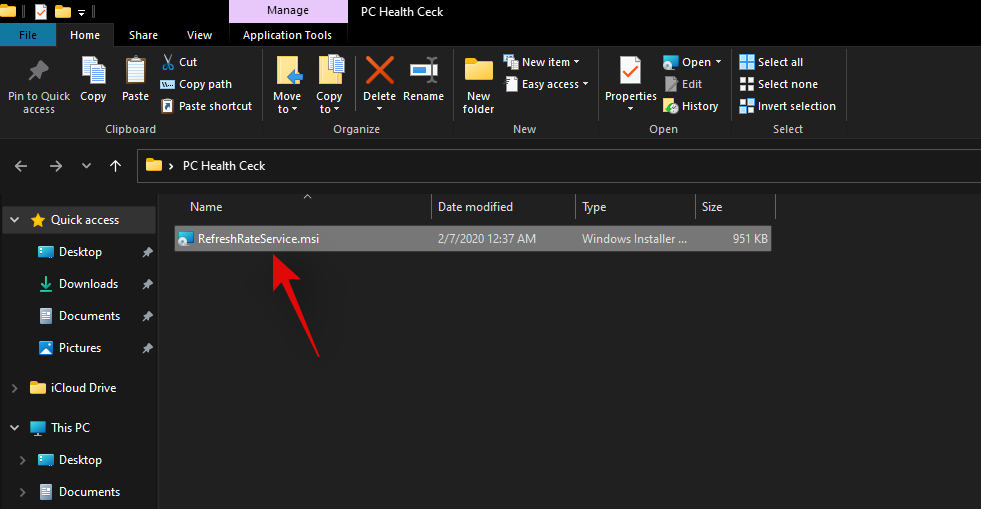
Follow the on-screen instructions until you are prompted to select one of the courses of action.
- Repair
- Modify
- Uninstall
- Install Updates
- Remove Updates
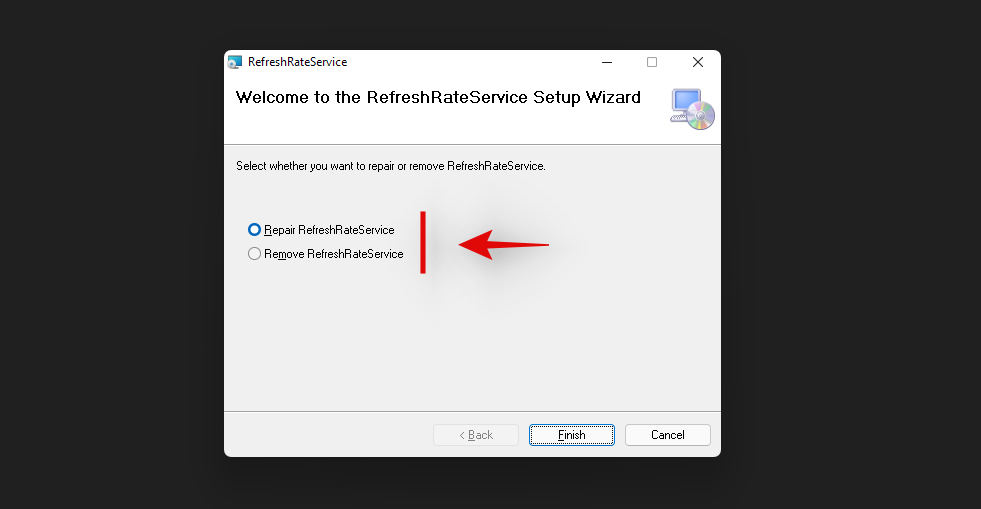
Select the desired option and continue with the on-screen instructions to complete the uninstallation process.
And that’s it! The selected program should now be removed from your system via its .msi setup file.
Method #08: Use a third-party uninstaller
There are various third-party uninstallers available on the market as well. These apps help identify all the system and third-party apps on your system which can then be uninstalled from your PC with a simple click. Most of these programs allow you to remove system apps after opting for the premium model of the software.
In case you decide to use the free version, you will be limited to a certain number of uninstalls in most cases. While this might sound redundant, these utilities are extremely useful for professionals and technicians that need to uninstall multiple programs with a single click. Most of these uninstallers support bulk uninstallations which is quite useful when setting up multiple systems for an office environment. We have linked the two most popular third-party uninstallers below. We hope you find them useful in your quest to uninstall programs from Windows 11.
How to uninstall system apps on Windows 11 [2 Ways]
You can uninstall system apps on Windows 11 either via an elevated PowerShell or by using a third-party PowerShell script. I would recommend that you use the PowerShell method, although it might seem more complicated, you won’t have to run third-party scripts with elevated privileges on your system.
However, if you still decide to use an automated script, ensure that you change your execution policy back to normal once the script has been executed. This will be paramount to your system’s security as leaving the execution policy unchanged might allow malicious users to run PowerShell scripts on your system easily. Use one of the methods below that best suits your current needs and requirements to get started.
Method #01: Using Powershell
The PowerShell uninstallation process for any program has two processes. First, sourcing the full package name of the concerned app and then using PowerShell to uninstall the concerned app. If your app does not show up in the PowerShell list, then you might have to use the third-party script below to remove the concerned app from your system. Let’s get started.
Step 1: Source full package name
Press Windows + s on your keyboard and search for ‘PowerShell’. Click on ‘Run as administrator’ once it shows up in your search results.

Once PowerShell launches, type in the command below and press ‘Enter’ on your screen.
get-appxpackage
PowerShell will now generate and show a list of all the apps installed on your system including built-in OEM apps and Windows app. Scroll the list to find your app, however, if this seems too tedious, start by right-clicking on the title bar at the top.
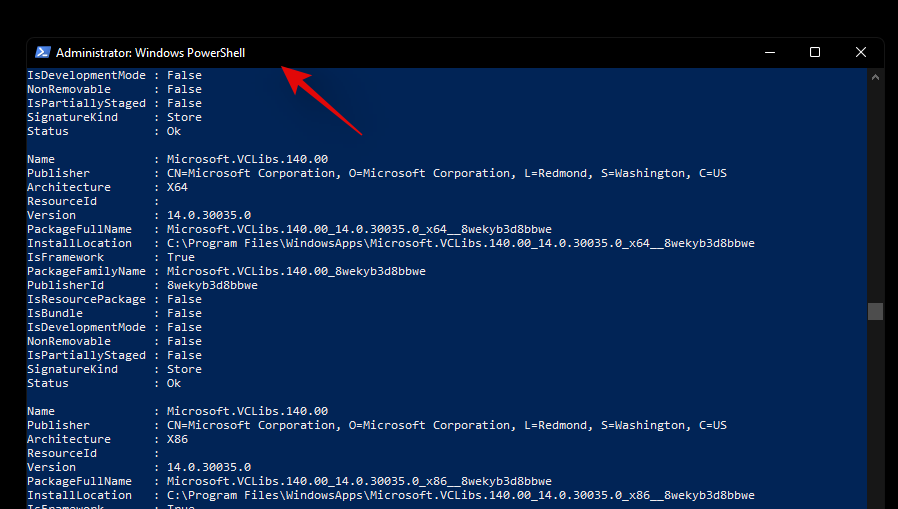
Now select ‘Edit’.
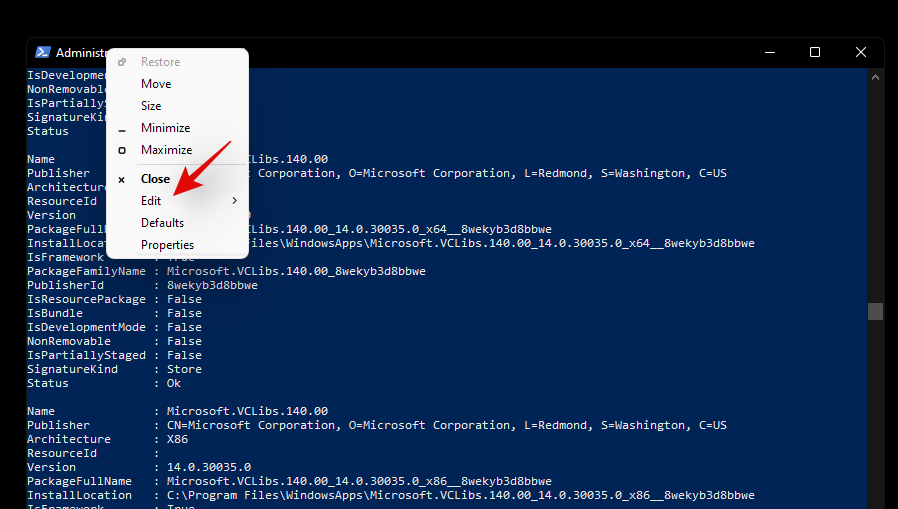
Click on ‘Find’.
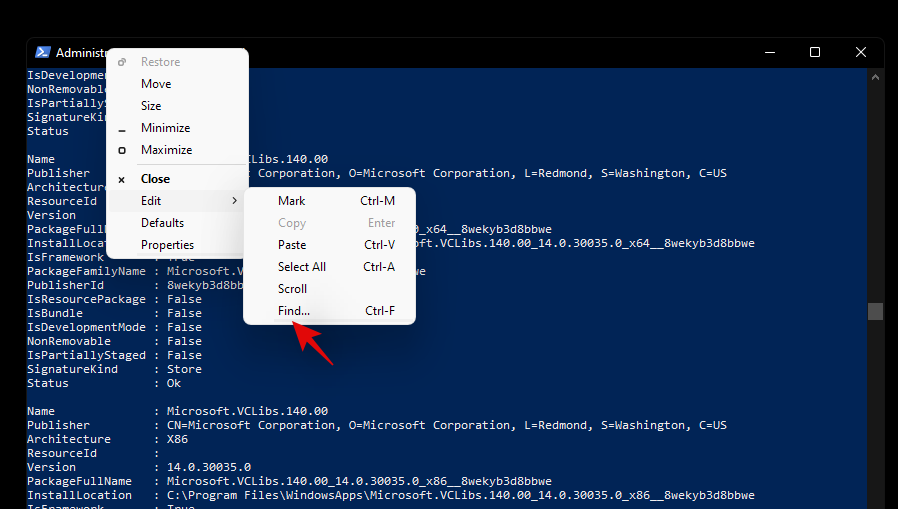
Now search for the general name of the app and the ‘Find’ feature should automatically take you to the app in the list.
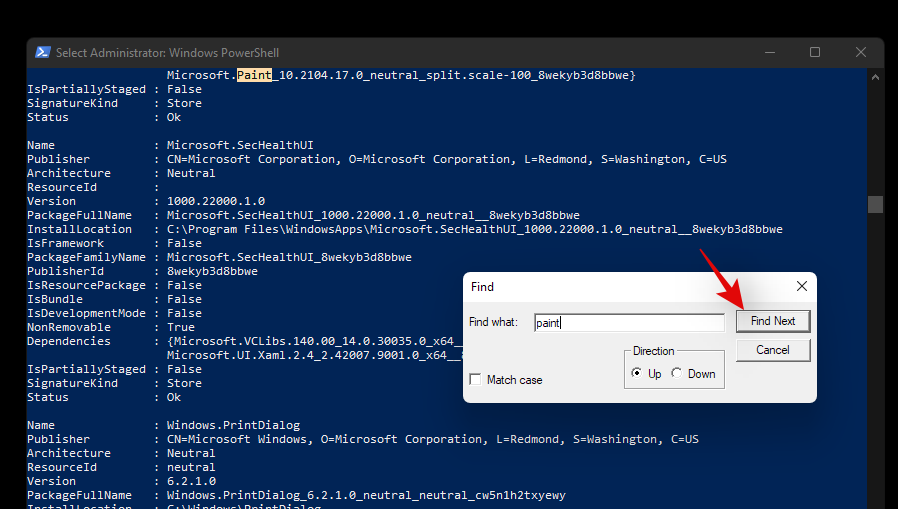
Note down the ‘FullPackageName’ of the concerned app as shown below.
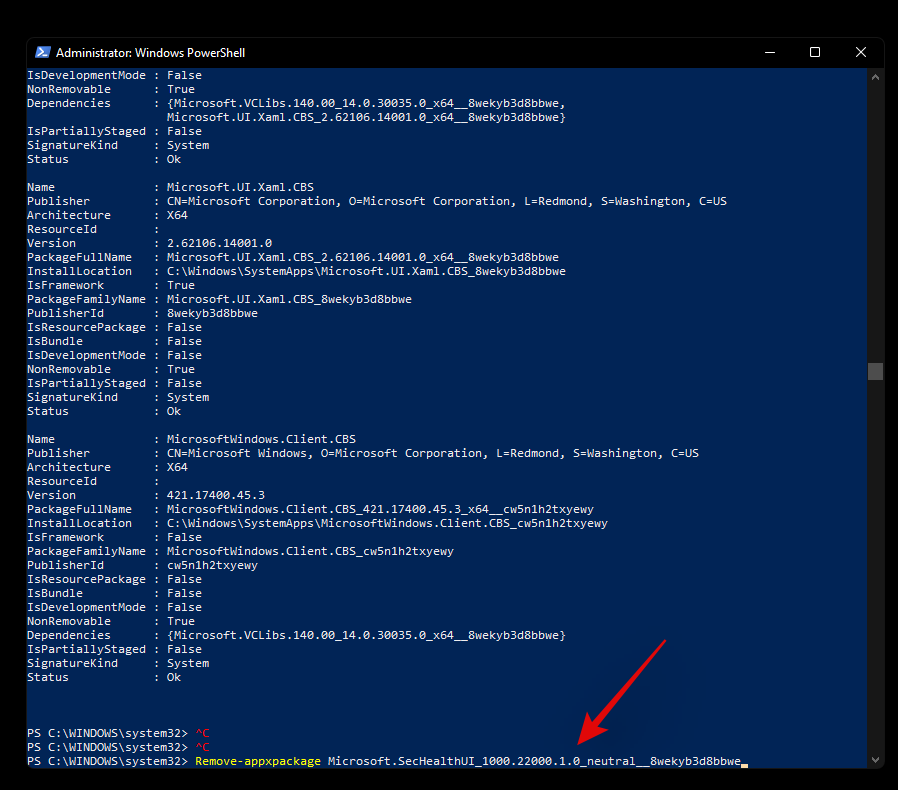
And that’s it! You will now have sourced the full package name for the concerned app on your system. You can now use the guide below to uninstall it from your system.
Step 2: Uninstall app via PowerShell
Open an elevated PowerShell using the guide above. If you already have one open on your screen, then start by typing in the following command. Ensure that you replace ‘[PackageName]’ with the full package name of the app we sourced above.
Remove-Appxpackage [PackageName]

Hit ‘Enter’ on your keyboard once you are done. PowerShell will now do its thing and the app should be installed from your system in no time.
Can’t remove an app using PowerShell? How to fix
If you are unable to remove the app via PowerShell then we recommend you do the following checks to solve the issue.
- Ensure that you are using an elevated PowerShell window.
- Ensure that the Full Package Name has been sourced correctly.
- Verify your ‘uninstall’ codes and try to keep everything lowercase.
- Repeat the same guide in Safe mode.
- Verify if the app hasn’t been already removed from your system and only leftover registry files are showing up in PowerShell.
You should be able to solve your issue by crosschecking the above-stated checks. However, if you are still unable to uninstall the concerned app, then you can use the third-party script below.
Method #02: Using a third party script
You can also use a third-party script to remove system apps from your Windows 11 system. These scripts have been quite popular lately and have been the go-to choice for many users when setting up fresh installations of Windows. Use the guide below to get started.
- Windows10debloater by Sycnex | Download Link
Note: While this is a Windows 10 script, it has been verified to remove system apps on Windows 11 as well. However, we recommend you keep checking the download page for updates that should be better compatible with Windows 11. We recommend using the script to only remove system apps and nothing else offered by the script. Other features could potentially break Windows 11 until a compatible script for the same is released in the future.
Visit the link above and you will be taken to the GitHub page for the script. Click on ‘Code’ in the top right corner.
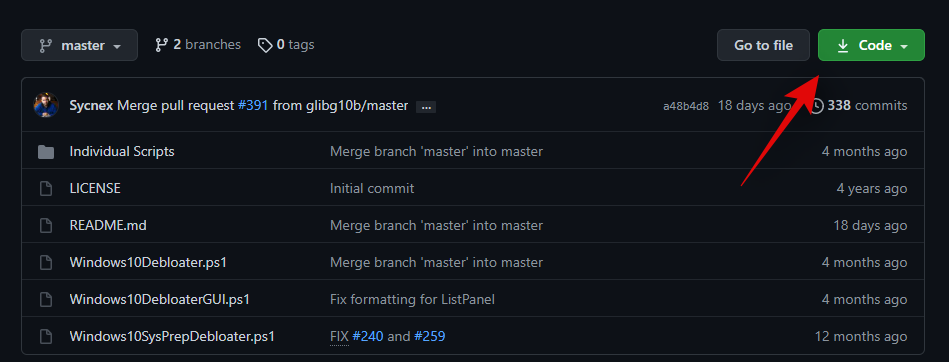
Now click and select ‘Download ZIP’.
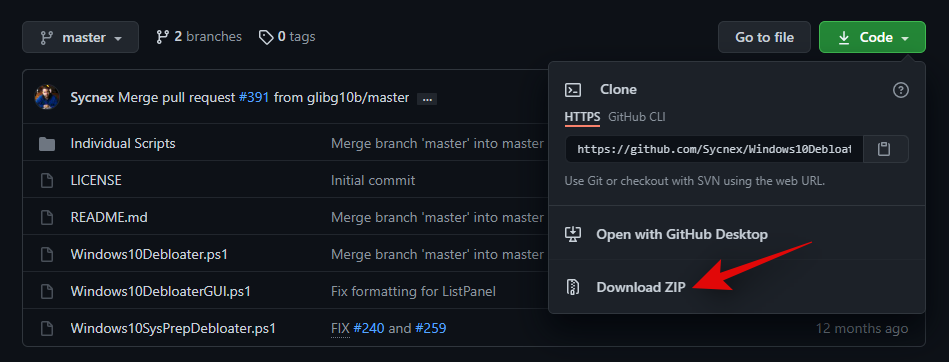
A Zip file will now be downloaded to your local storage. Extract the files to a convenient location.
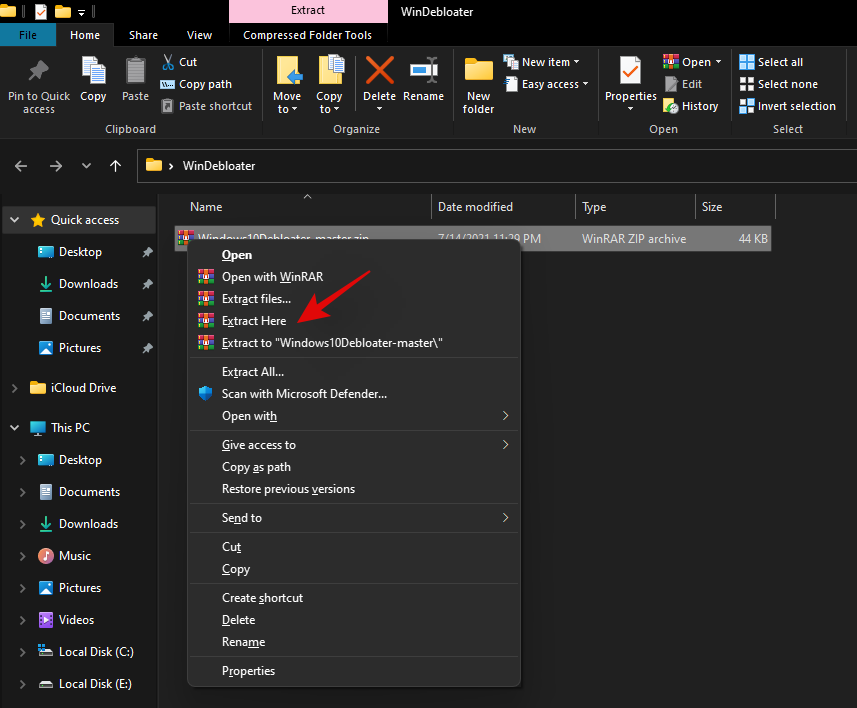
Once extracted, open the folder and click on ”File’ in the top left corner.
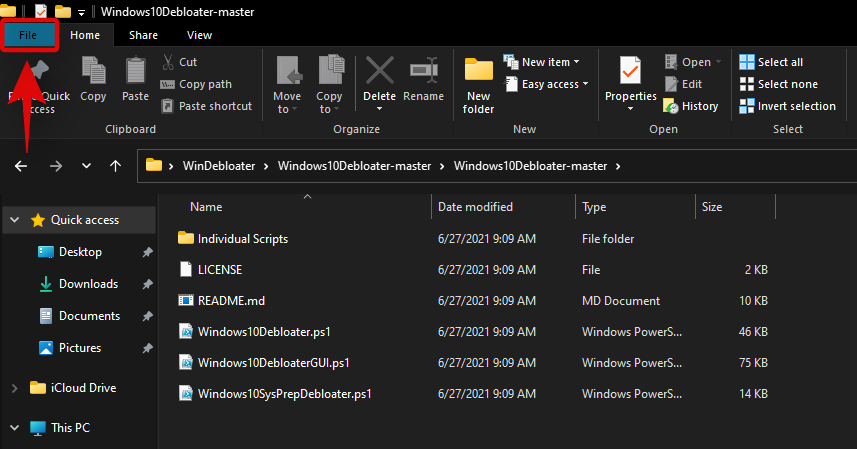
Hover over ‘Open Windows PowerShell’ and select ‘Open Windows PowerShell as administrator’.
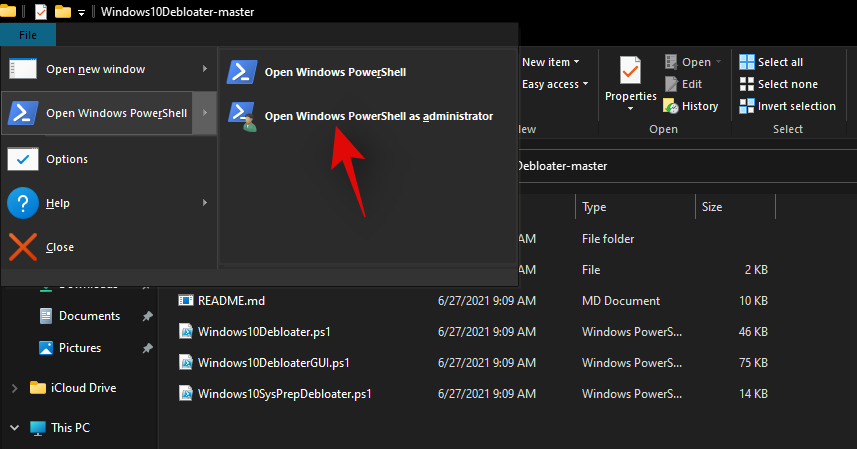
An elevated PowerShell window will now launch on your system. Start by executing the following command given below.
Set-ExecutionPolicy Unrestricted -Force

This will set your script execution policy as unrestricted which will allow us to use the script on your system. Once executed, enter the following command in the window and press ‘Enter’ on your keyboard once you are done.
.\Windows10DebloaterGUI.ps1

This will execute the debloat script and you should now get a graphical interface for it on your screen. Click on ‘Customize Blacklist’ at the top.
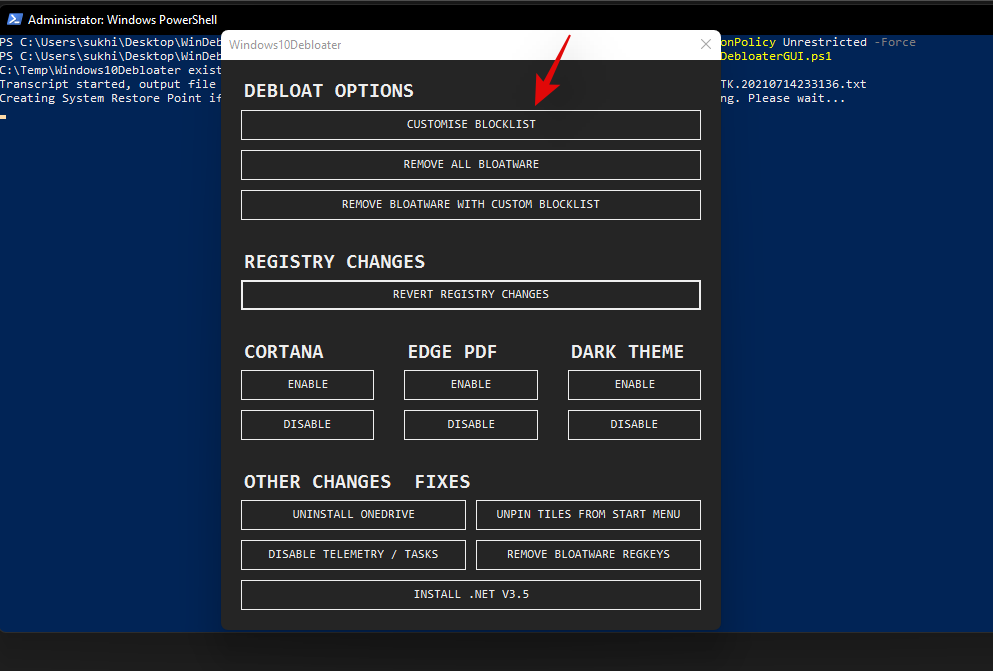
You will now get a list of all the apps installed on your system. Check the box for the apps you wish to uninstall and uncheck the box for the apps you wish to keep on your device. Ensure that you go through the entire list to remove any default selections made by the script for the programs that you wish to keep on your device.
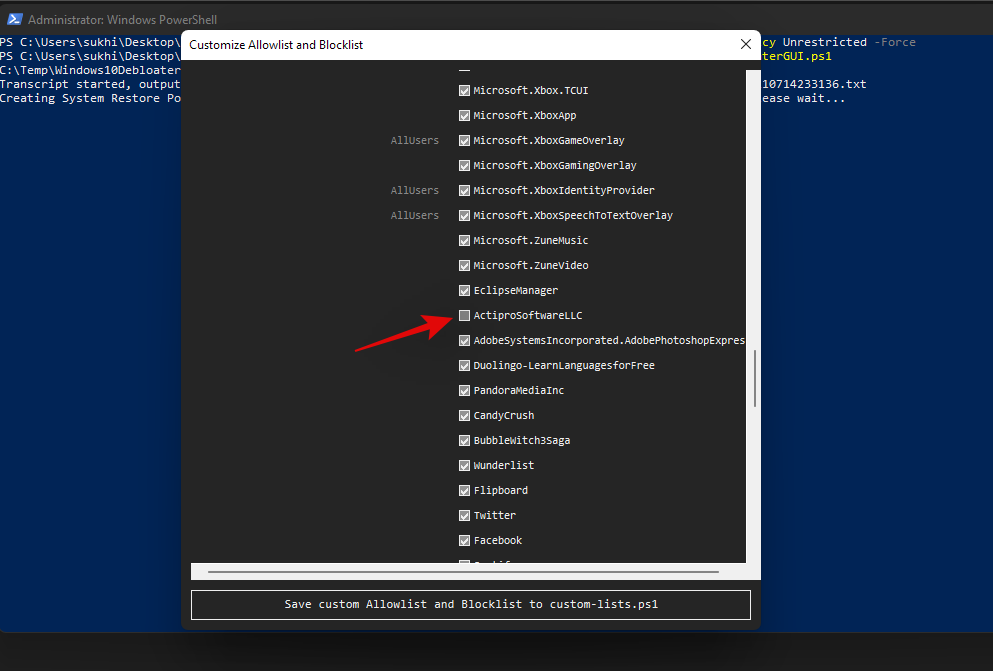
Once you have edited your list, simply click on ‘Save custom Whitelist and Blacklist to custom-lists.ps1’ at the top. You can now close this app selection window.
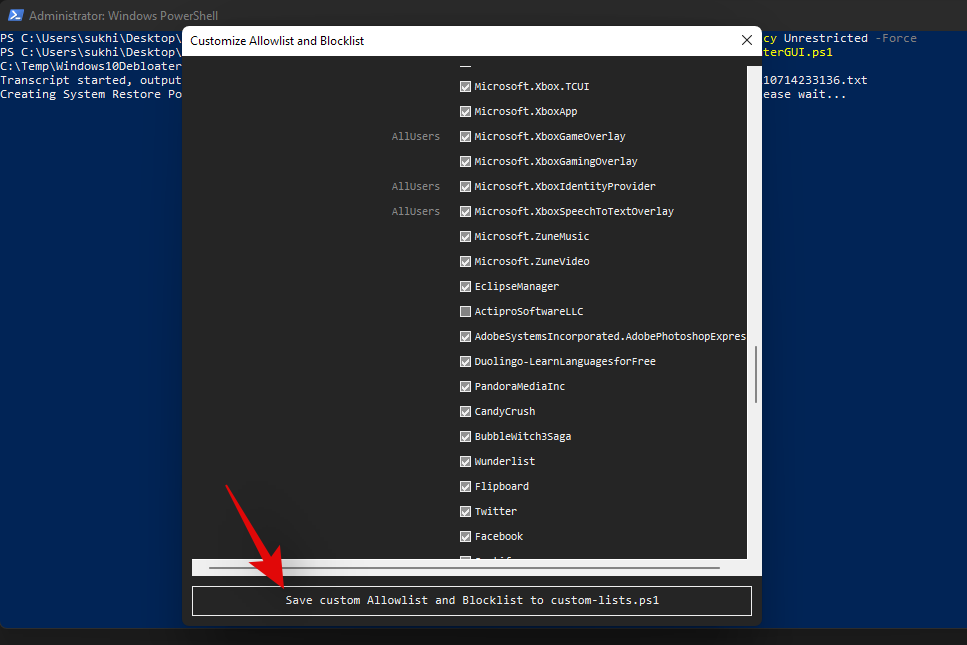
Now click on ‘Remove Bloatware with Customized Blacklist’. Keep an eye on the PowerShell window on the background once the command executes.
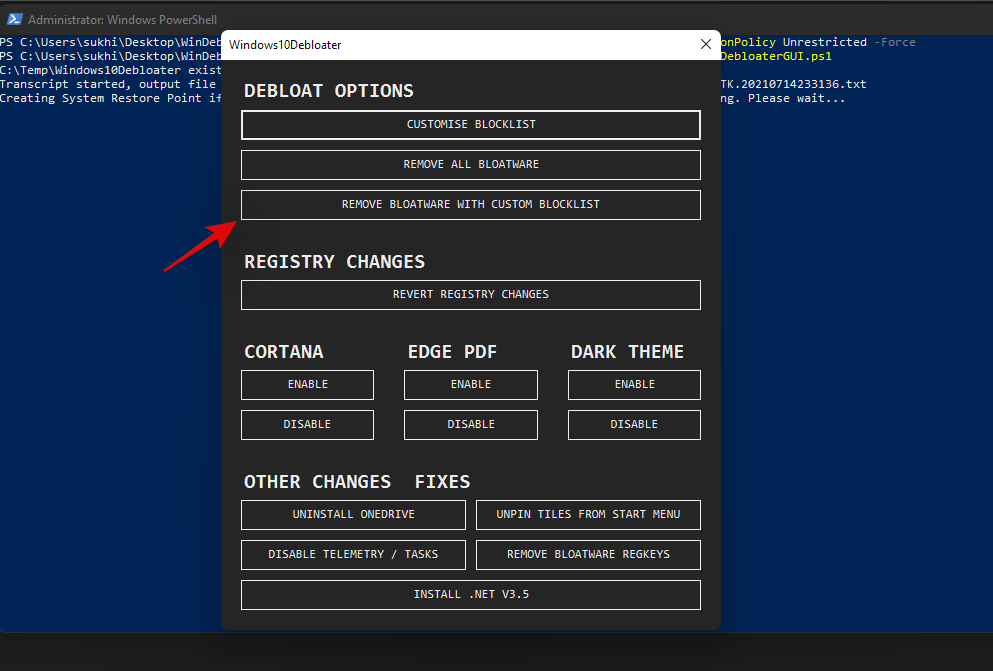
Once all programs have been removed, you will get a confirmation for the same in the PowerShell window in the background. Close the graphical interface by clicking on the ‘X’ in the top right corner.
Now go back to your PowerShell window and execute the following command.
Set-ExecutionPolicy Restricted -Force

This will revert changes to your execution policy and revert the changes we made earlier. Doing this is quite important to maintain proper security on your Windows system.
And that’s it! You will now have uninstalled system apps from your system via a third-party PowerShell script.
Can’t uninstall apps on Windows 11? How to fix
There could be a few reasons why you are unable to uninstall apps on your system. Here are a few workarounds that should help you uninstall persistent apps from your system easily.
Method #01: Close instance in task manager and try again
Chances are that the app has an instance or a process open in the background which is preventing it from being uninstalled. In such cases, you can try finding processes related to the app and kill them on your own. Once the processes have been killed, you can then try to uninstall the app again. Follow the guide below to find and kill the process.
Press Ctrl + Shift + Esc on your keyboard to open the ‘Task Manager’. Switch to the ‘Details’ tab by clicking on it.
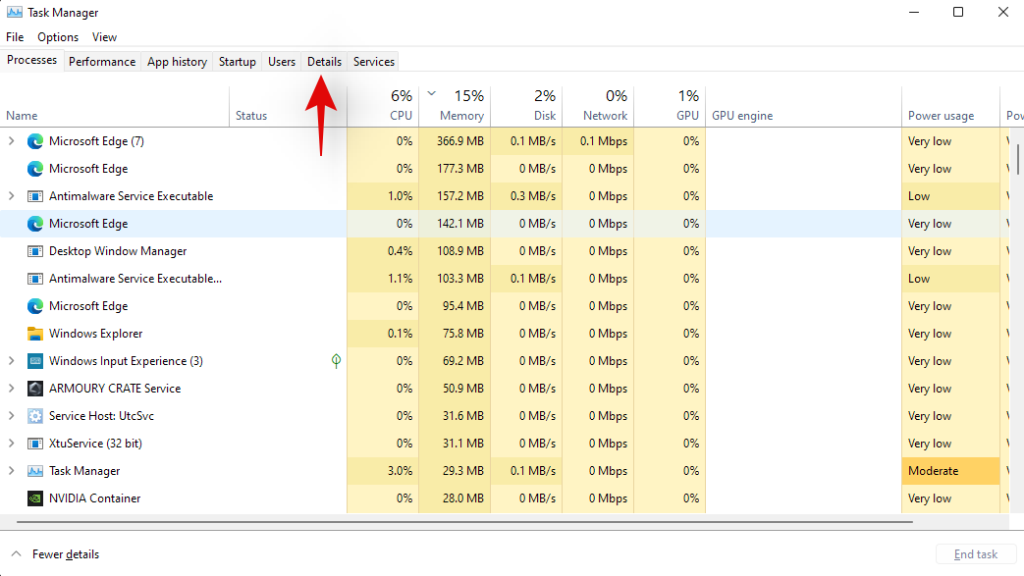
Now look for a process in the list for the concerned app. In our case, we are looking to uninstall ‘AsusOptimization’, hence we will look for a PowerToys process. Once found, click and select the process.
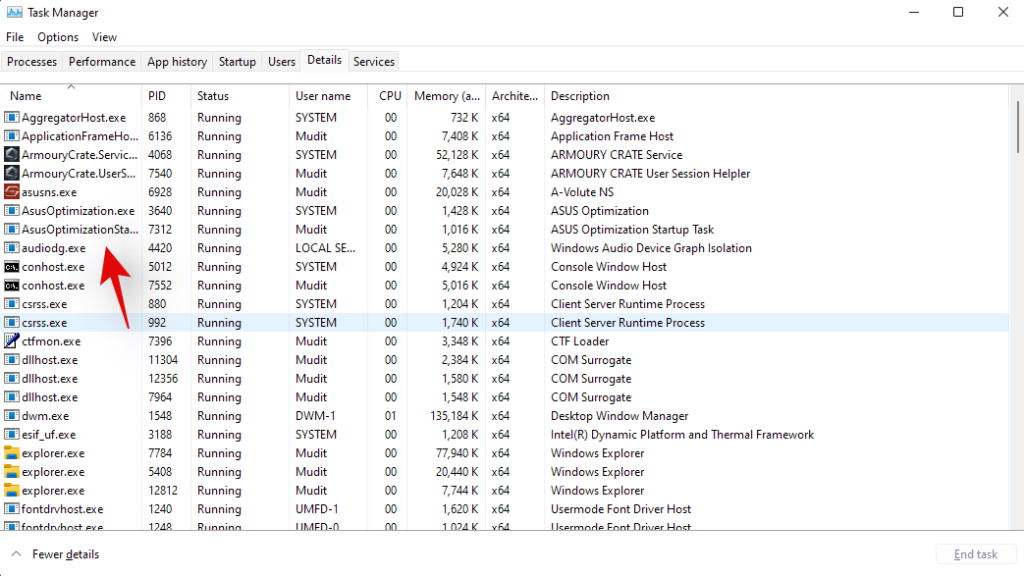
Hit delete on your keyboard or click on ‘End Task’.
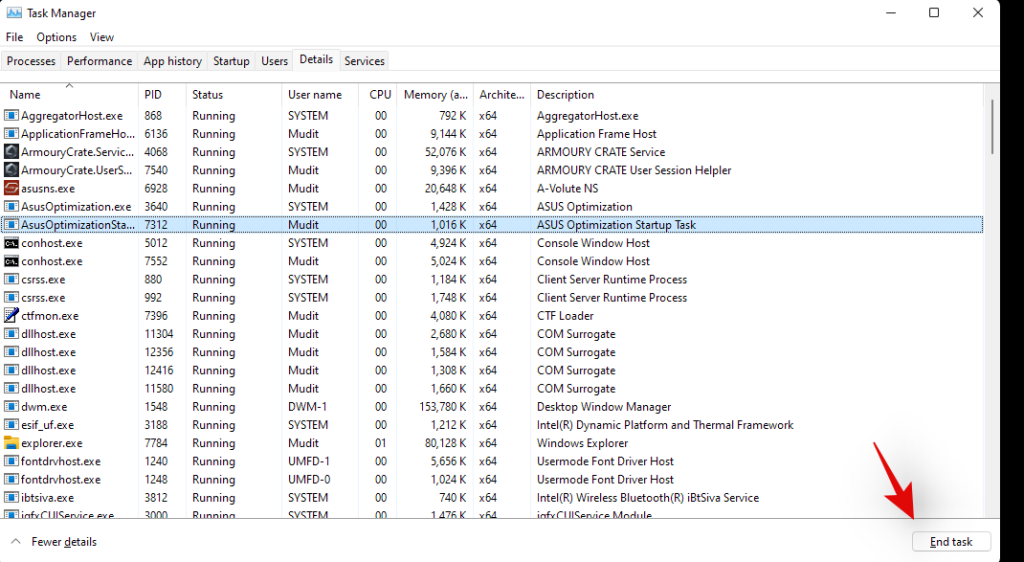
Confirm your choice by selecting ‘End Process’.
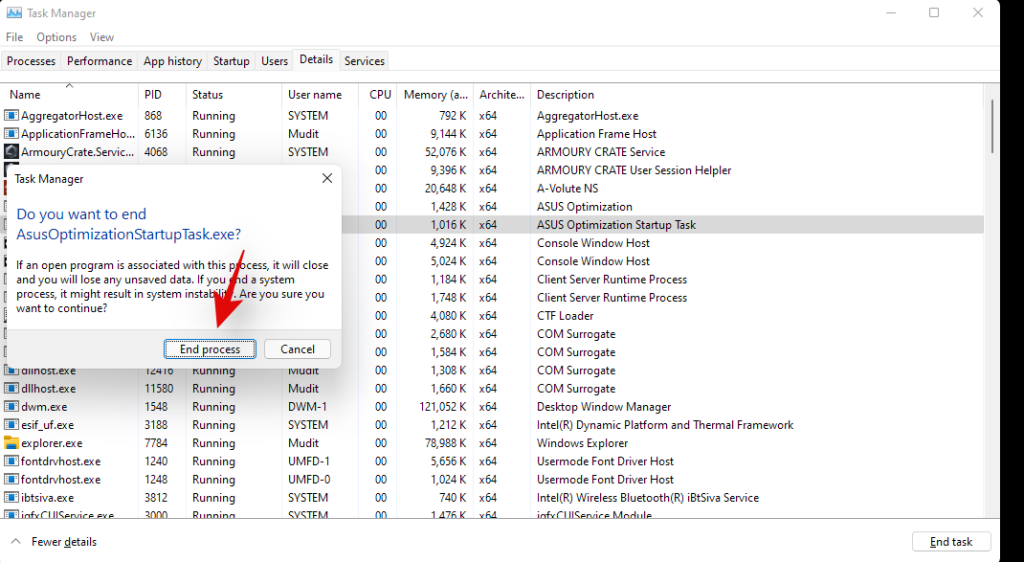
And that’s it! the process should now be killed and you can now try uninstalling the concerned app again.
Method #02: Uninstall in Safe mode
Another way to ensure that no third-party apps are launched or used in the background is to launch your system in safe mode and then try to uninstall your concerned app. You can use this comprehensive guide by us to enter safe mode on Windows 11.
Once in safe mode, follow the guide below to get the installer service back up and running on your system. Once the service is running in the background, you can use either of the methods above to uninstall the concerned app from your system.
Press Windows key + S key to open Windows Search and type in ‘cmd’. Click on ‘Run as administrator’ when the command prompt shows in your search results.
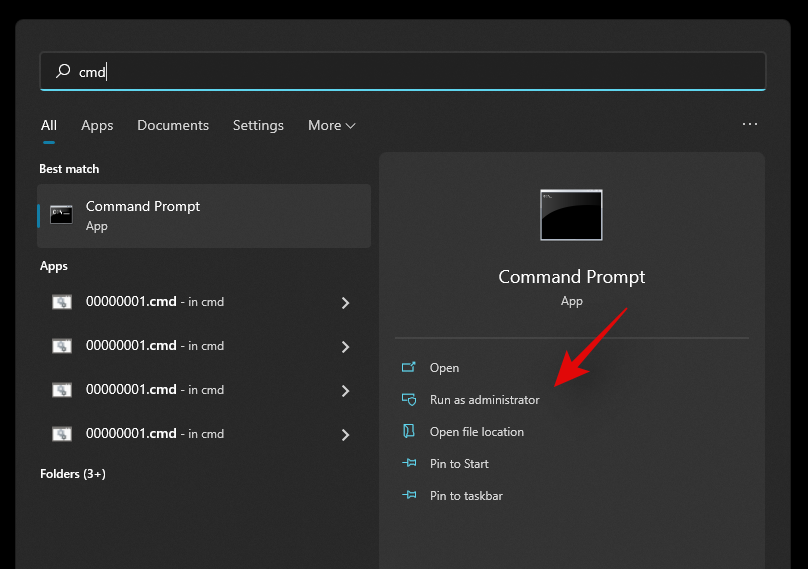
Enter the following commands in the command prompt one by one and hit Enter on your keyboard to execute each one of them.
REG ADD "HKLM\SYSTEM\CurrentControlSet\Control\SafeBoot\Minimal\MSIServer" /VE /T REG_SZ /F /D "Service"
REG ADD "HKLM\SYSTEM\CurrentControlSet\Control\SafeBoot\Network\MSIServer" /VE /T REG_SZ /F /D "Service"
net start msiserver

And that’s it! The installer service should now be running on your system and you should now be able to uninstall the concerned app using either one of the methods above.
Method #03: Run the Microsoft Uninstaller troubleshooter
You can also run a Microsoft Troubleshooter to try and fix uninstaller issues. Microsoft troubleshooters have come a long way since they were first introduced and can now fix most software and driver incompatibility issues without any user intervention.
Microsoft has also made it much easier for you to now launch any troubleshooter to try and solve your current issue. Use the guide below to launch an uninstaller troubleshooter on your Windows 11 system.
Required
Guide
Download the troubleshooter using the link above to your PC. Once downloaded, extract the .zip file to a convenient location. If you have trouble extracting the .zip file or it seems to be blocked, use the guide below to unblock it, else you can skip the guide and jump to the next guide.
Unblock the .zip file
Right-click on the .zip file and select ‘Properties’.
Check the box for ‘Unblock’ at the bottom of the Window.
Click on ‘Ok’.
Provide administrator permission to make the necessary change.
The file should now be unblocked on your system and you should now be able to extract it like any other .zip file on your system.
Run the troubleshooter
Navigate to the extracted files on your local storage. Cut the file named ‘MicrosoftProgram_Install_and_Uninstall.meta.diagcab’ and paste it on your desktop. Double click and run the file from your desktop. Click on ‘Advanced’ at the bottom once the troubleshooter is launched.
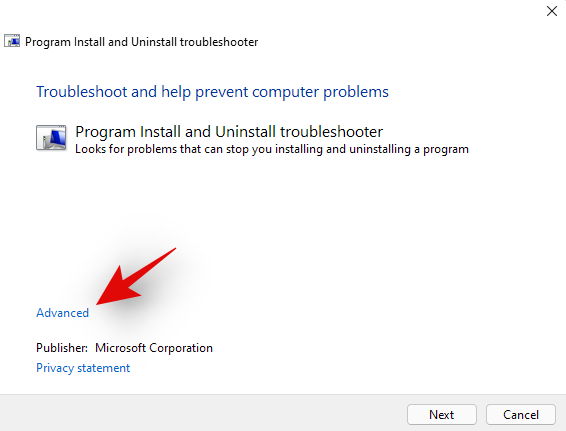
Check the box for ‘Apply repairs automatically’. Click on ‘Next’ once you are done.
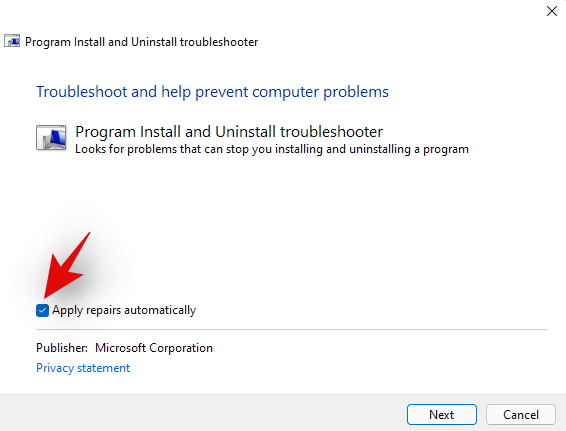
Select ‘Uninstallting’ on the next step.
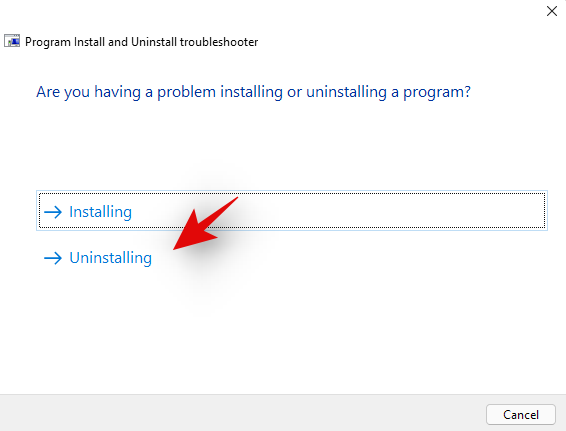
Select the concerned program from the list provided on your screen. If your program does not appear in the list, click on ‘Not Listed’.
Now follow the on-screen instructions depending on your choice to complete the troubleshooting process.
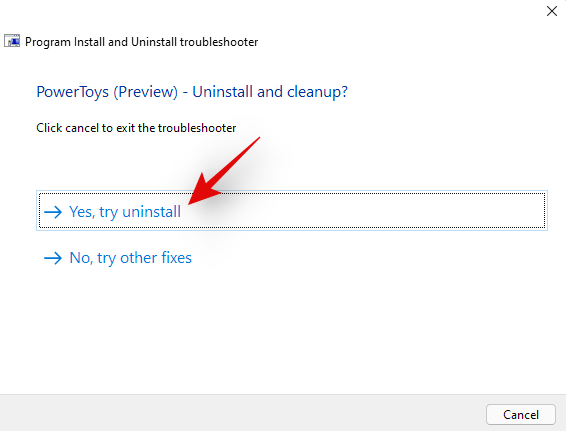
And that’s it! In most cases, the troubleshooter will detect your issue and solve it automatically. A report for the same will be presented to you at the end of the process with all the details.
Method #04: Use a restore point
If you are still having issues uninstalling the software from your system then it is time for some drastic steps as this could be malicious in nature. Let’s restore your PC to a restore point before the concerned app or program was installed on your system.
However, if you do not have a restore point then you can jump to one of the other methods listed below. Here’s how you can use a restore point to restore your PC to its previous state.
Press Windows + S on your keyboard and search for ‘Recovery’. Click and launch the app link once it shows up in your search results.
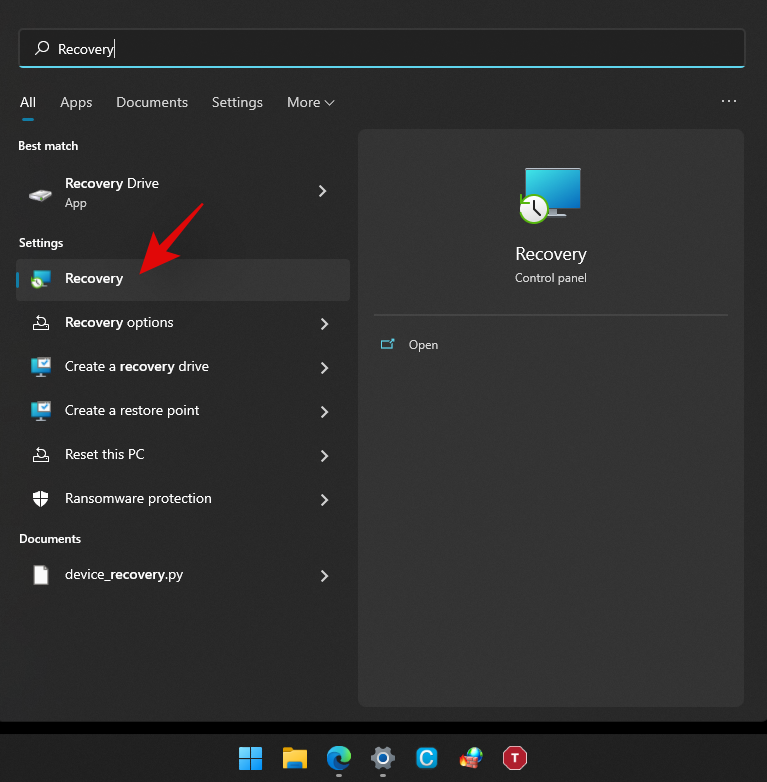
Click on ‘Open System Restore’.
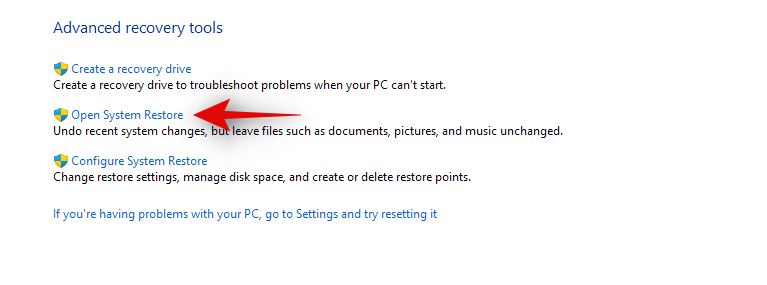
You will now be suggested a recent system restore point if you have one. Select that if needed, or click on ‘Choose a different restore point’ if you wish to choose an older one.
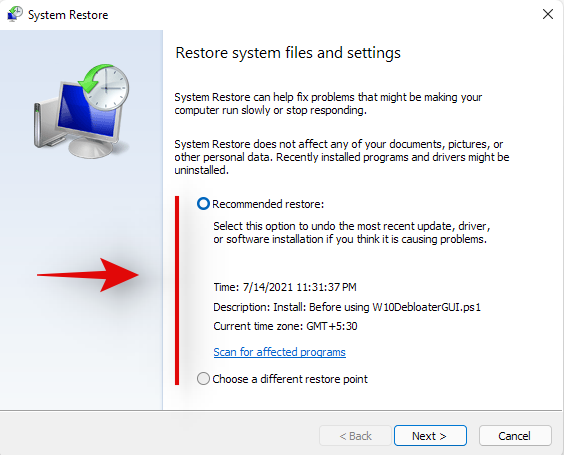
Select ‘Next’ or hit ‘Enter’ on your keyboard.
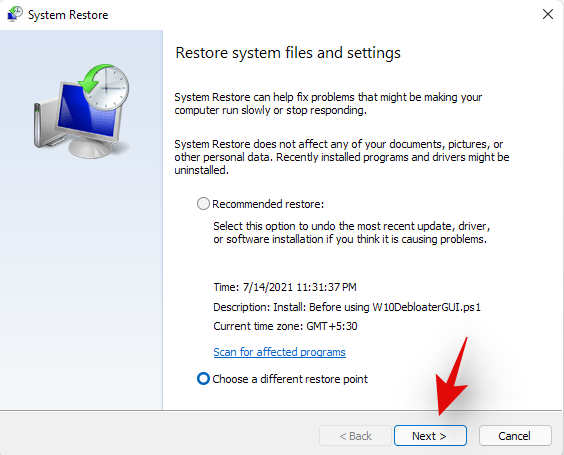
You can now select the desired Restore Point from the list at the top. You can check the box for ‘Show more restore points’ if you wish to look at more restore points.
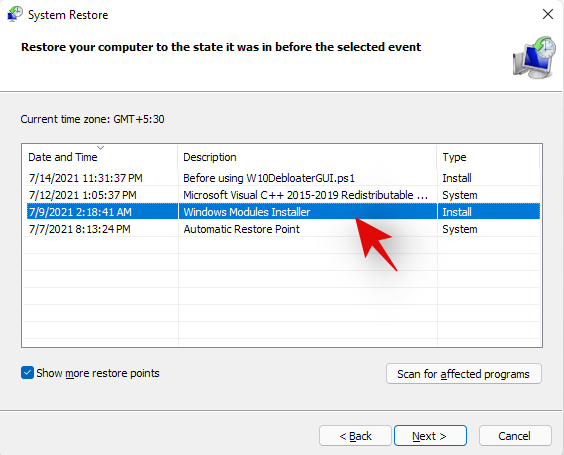
Once selected, click on ‘Next’.
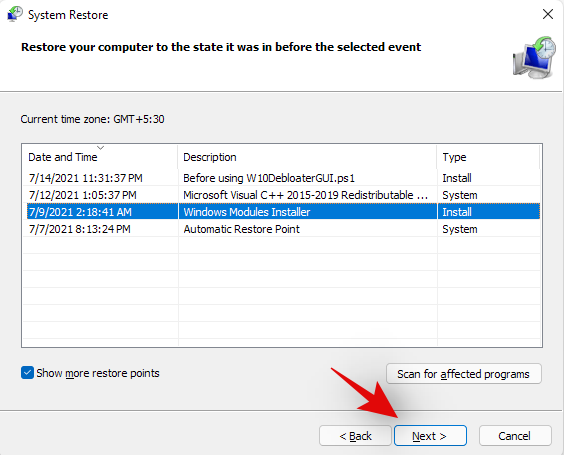
Finally, click on ‘Finish’.
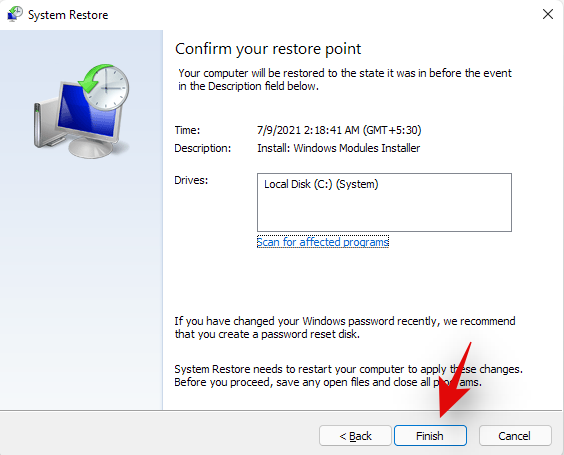
Windows 11 will now restore your system to the selected restore point and the concerned app should no longer be on your system once the process is completed.
Method #05: Contact Windows Support
If you are still unable to get the app uninstalled from your system then it might be time to contact Microsoft Support. Microsoft Support executives are trained to solve such issues with more expertise and can even remotely takeover your system if needed. It might be time to get in touch with the support team to solve your issue. Additionally, if you purchased a pre-built system, you can use your OEM support for some help as well. Use the link below to get in touch with Microsoft Support.
► Microsoft Support
Uninstall programs on Windows 11: FAQs
Can you uninstall pre-installed apps?
Well, officially, you can not and it is not recommended by Microsoft. But still, if you wish to remove preinstalled apps, you can easily do so depending on the type of the app. If you wish to remove a system app then the process is a bit complicated. Else, if you wish to remove third-party pre-installed apps then you can simply do so by uninstalling them like any other app from your Windows 11 Pc using the guide below.
Can you uninstall system apps?
Yes, you can uninstall system apps but not officially. Officially Windows 11 or any Windows for that matter, doesn’t allow you to remove system apps from the OS. However, there are many workarounds to circumvent this restriction and uninstall preinstalled system apps from your system.
This includes using command prompt/PowerShell or a third-party software. Using these methods you should be able to easily uninstall system apps from your system. Follow our guides below for each of the methods depending on your current needs and requirements.
Can you uninstall apps downloaded from the Microsoft Store?
Yes, apps downloaded from the Microsoft Store can be uninstalled easily using either of the methods listed below. This includes Android apps that you may have downloaded on your system but did not find appealing enough. We recommend uninstalling Windows Store apps either via Settings or Start.
Chances are that the Store app will now show up in the Control Panel and if uninstalled via CMD or PowerShell, you could end up with leftover files including empty Start menu folders. Hence, use Powershell or CMD for Windows Store apps only if you are facing an issue uninstalling them via the Settings or the Start menu.
What happens when you uninstall a program?
Uninstallation is the process of removing a program or an app from your system. While apps are installed singularly with all dependencies available to them in a sandbox, programs operate differently. Programs usually have scheduled tasks, customized registry values to execute them, and dependencies for various Windows features and extensions that they need for their own installation process to create and place every file and task correctly.
Hence the removal process for all these things created by a program when it is first installed on your system is called uninstallation. All scheduled tasks, registered services, registry keys, executables, temporary files, log files, and more are removed once you uninstall a program from your system. In some cases, you will be leftover with settings and save files so that you don’t have to set up the program entirely when installing it in the future.
These files can be cleared by clearing your Windows Cache and temporary files in most cases. However, if you still suspect leftover files from a program on your system, then we recommend checking the following places for any leftover files. If found, you can simply delete them like any other file on your system.
- /Documents
- C:\Program Files (x86)\Common Files
- C:\Program Files\Common Files
- C:\ProgramData
- C:\Users\USER\AppData\Local
- C:\Users\USER\AppData\LocalLow
- C:\Users\USER\AppData\Roaming
- C:\Users\USER
How to remove data of uninstalled programs
If you still see the remaining files and folders or context menu options for a removed program or app, then you can try the fixes below to solve your issue.
Method #01: Clear cache and temporary files from Windows
You should first try clearing cache and temporary files from your Windows 11 system. In most cases, this will help the overall File Explorer UI to refresh itself which should automatically remove leftover files and context menu items for removed programs from your system.
You can use this comprehensive guide by us to easily clear your Windows 11 cache and storage. You can also use the same guide to free up storage space on your system as well by deleting other large files and installations that show up in the list.
Method #02: Check for leftover files manually
You can also check and delete all leftover files manually for the removed program or app. You should start by using Windows Search to look for any files or folders associated with the uninstalled program. You can then delete these manually from your local storage.
Once you have deleted all the files and folders that show up in the search, you can proceed to manually check the locations listed below. If they contain any leftover files or folders from the removed program, then you can simply select them and delete them from your system.
- /Documents
- C:\Program Files (x86)\Common Files
- C:\Program Files\Common Files
- C:\ProgramData
- C:\Users\USER\AppData\Local
- C:\Users\USER\AppData\LocalLow
- C:\Users\USER\AppData\Roaming
- C:\Users\USER
Method #03: Run a third-party uninstaller/cleaner
If you are still left with the remaining files and context menus for the program then it is time to use a third-party uninstaller or cleaner. These programs are specifically designed to identify and remove leftover files from previously uninstalled programs on your system. We recommend you give Revo uninstaller a try as even the free model for the app will help you identify the location of leftover files which can then be deleted by you manually. You can also use something like CCleaner that is designed to remove leftover files and free up storage and processing space on your system.
Method #04: Try to remove the app via PowerShell
If nothing works, then chances are that the concerned app was installed on your system using elevated privileges which prevents some files and folders from being removed from your system.
In such cases, we recommend you try to remove the app via PowerShell. You can use our guide above to remove system apps from Windows 11 via PowerShell. You will first need to source the full package name for your app or program, which can then be used to force uninstall it from your system.
Can you uninstall Windows Updates?
Yes you can easily uninstall Windows Update from your system. New updates can often introduce compatibility issues on older hardware and having the option to uninstall updates can always help. You can use the guide below to uninstall recently installed updates from your system.
How to uninstall Windows Updates
Follow the guide below to uninstall recently installed Windows Updates from your Windows 11 system.
Press Windows + i on your keyboard to open the Settings app. Click on ‘Windows Update’ on your left.
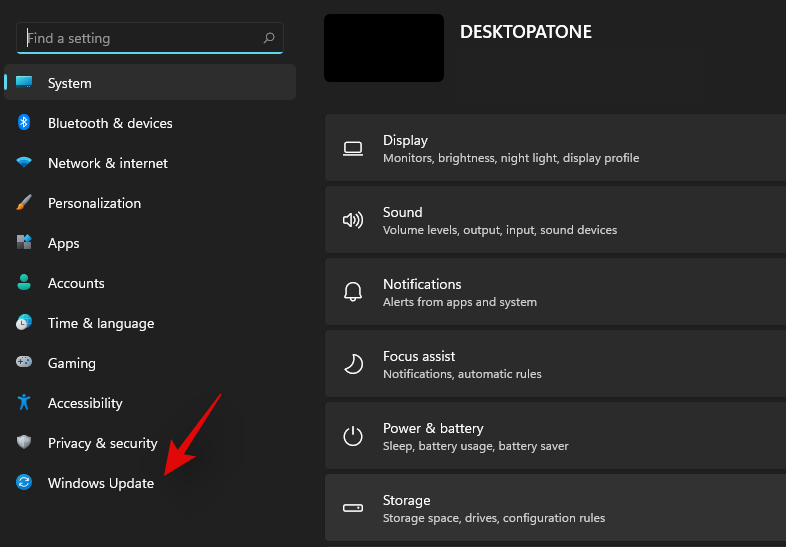
Now click on ‘Update history’.
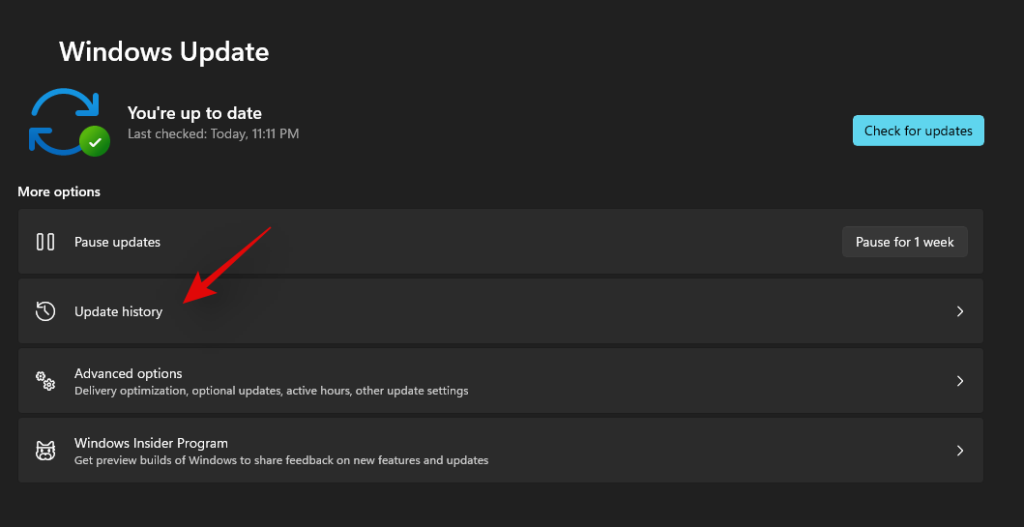
Scroll to the bottom on your right and click on ‘Uninstall Updates’.
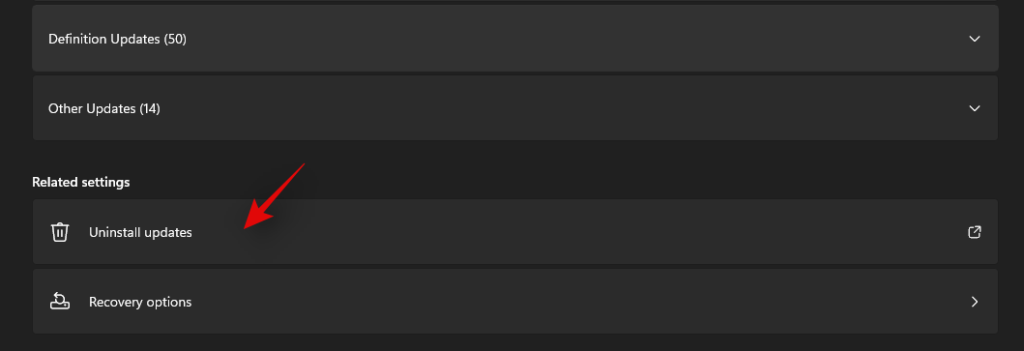
You will now get a list of all the recent updates installed on your system. Click and select the update you wish to uninstall.
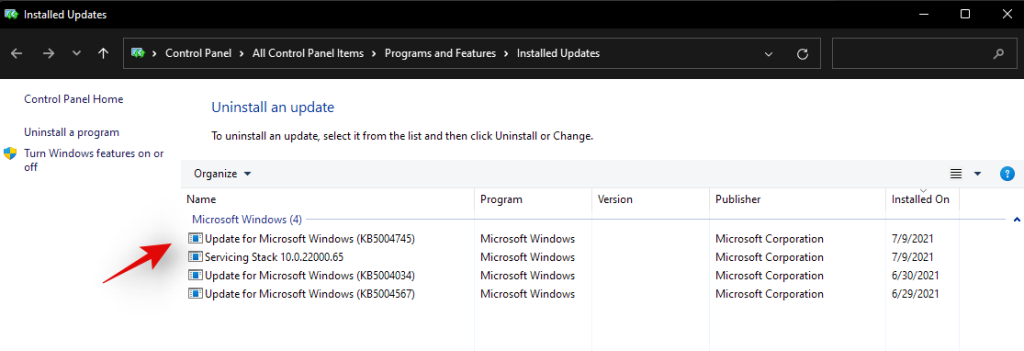
Click on ‘Uninstall’ at the top now.
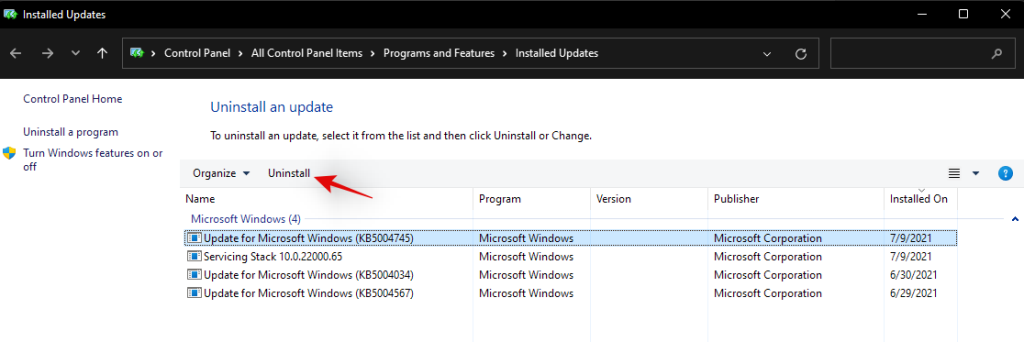
Follow the on-screen instructions to complete the process.
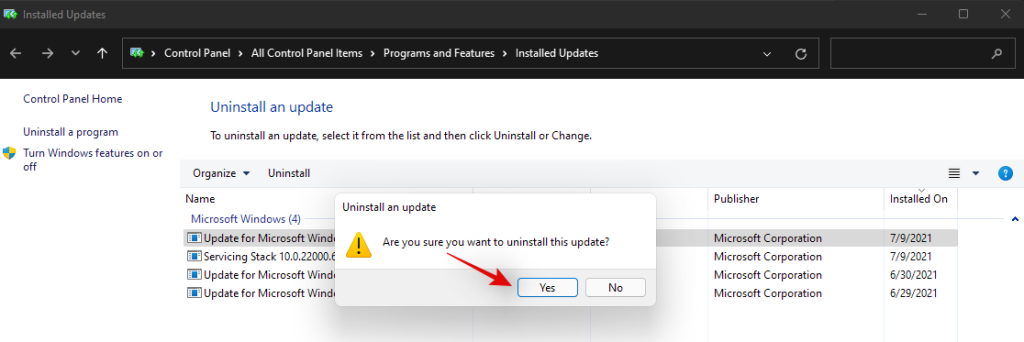
And that’s it! Your selected Windows update should now be uninstalled from your system.
We hope this guide helped you uninstall the concerned apps or programs from your system. If you still face issues, feel free to reach out to us using the comments section below.
![Come disinstallare McAfee su Windows 11 [5 modi] Come disinstallare McAfee su Windows 11 [5 modi]](https://cloudo3.com/resources8/images31/image-4917-0105182719945.png)








































































